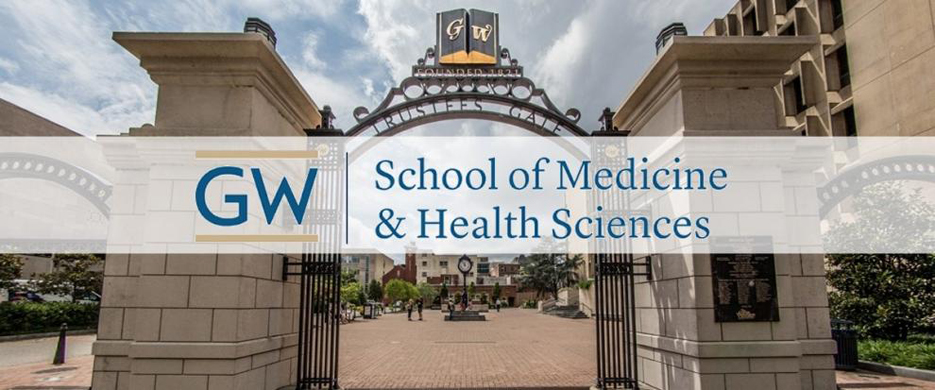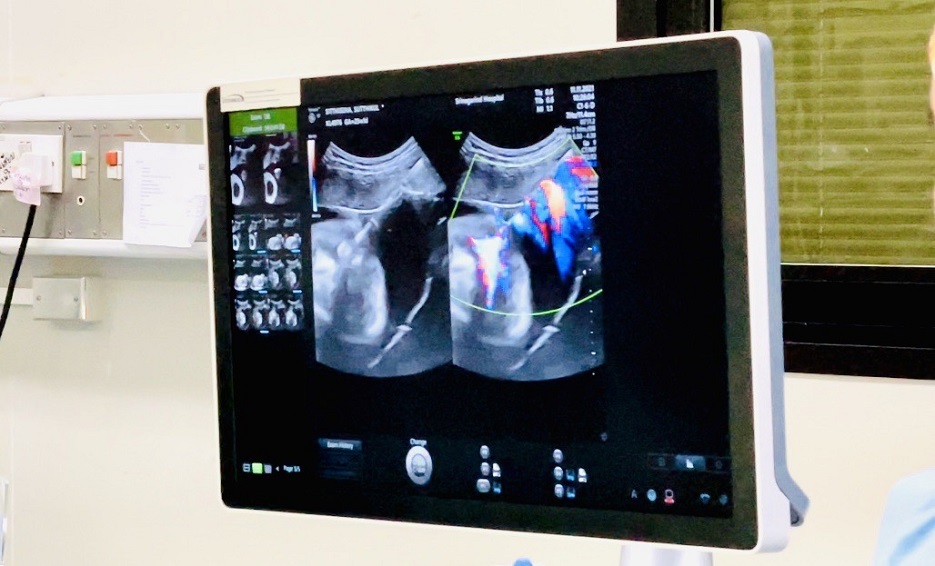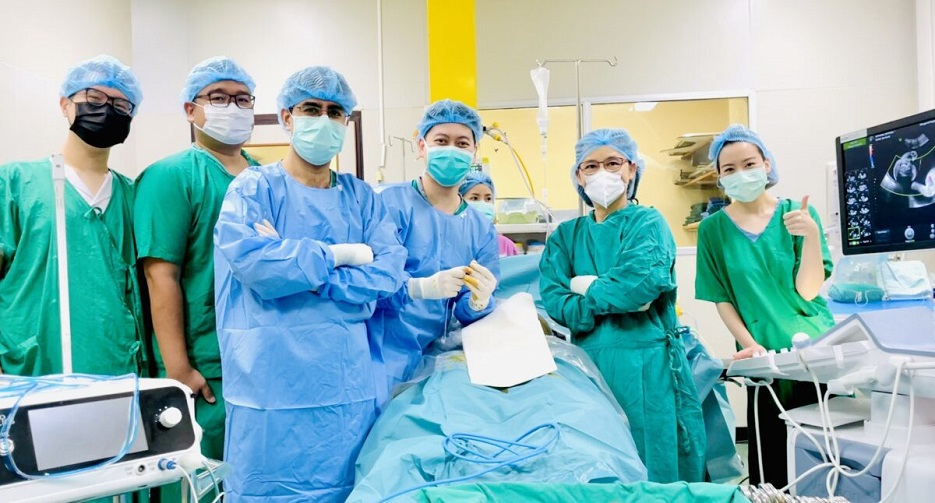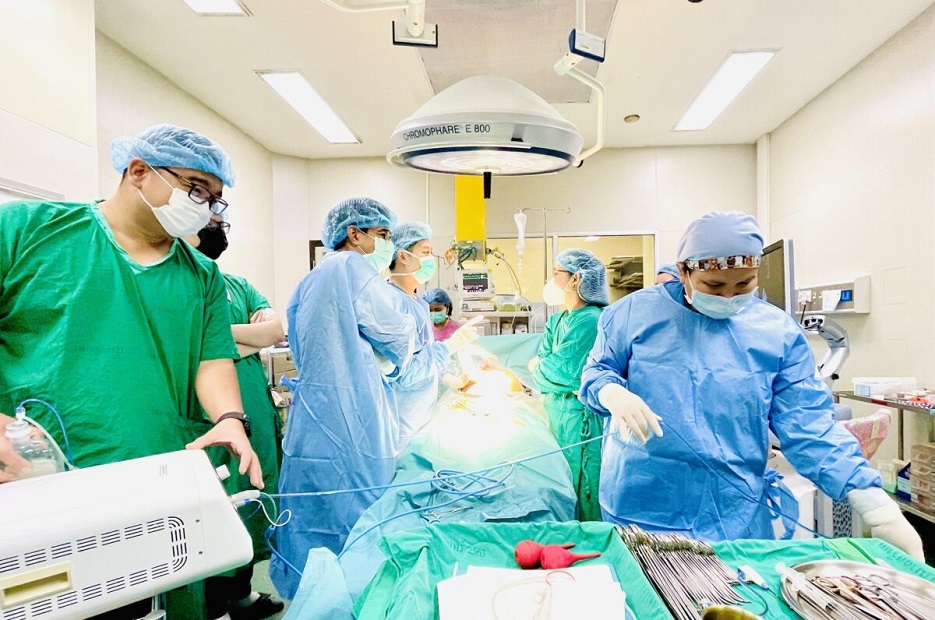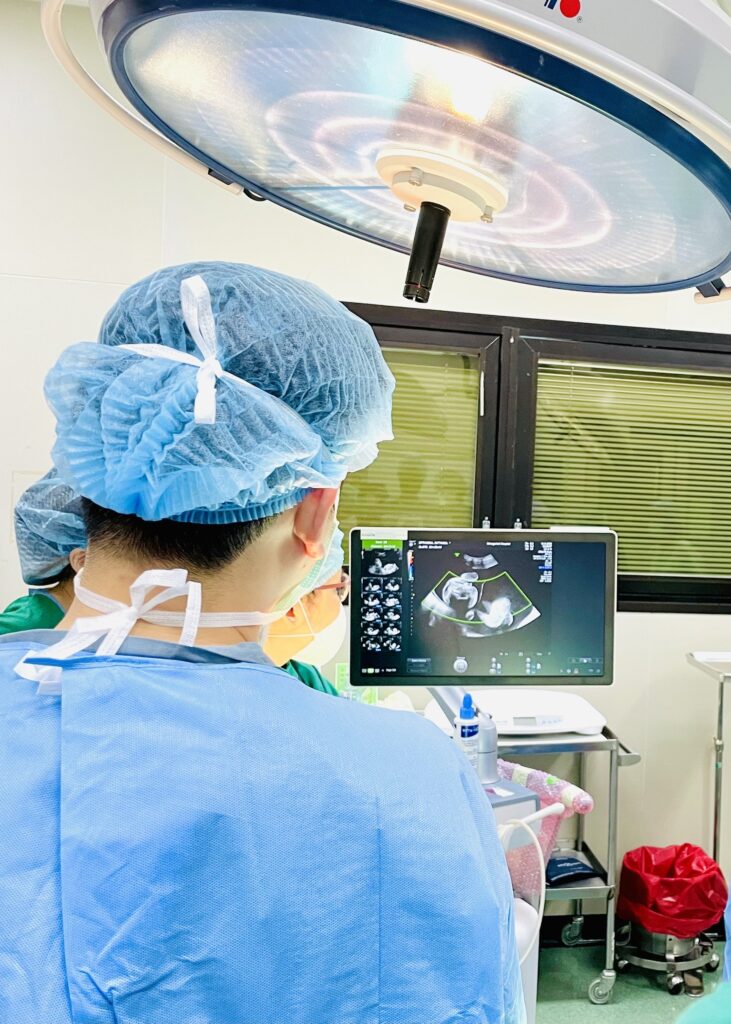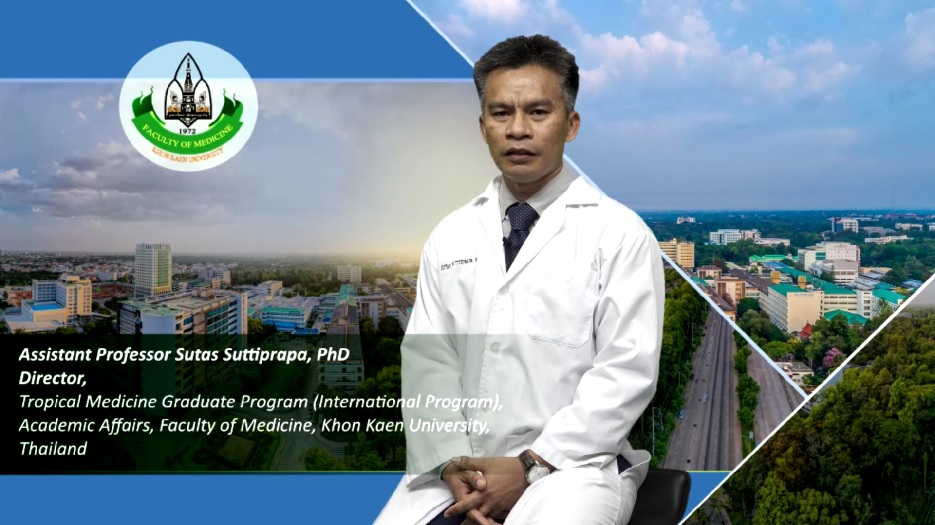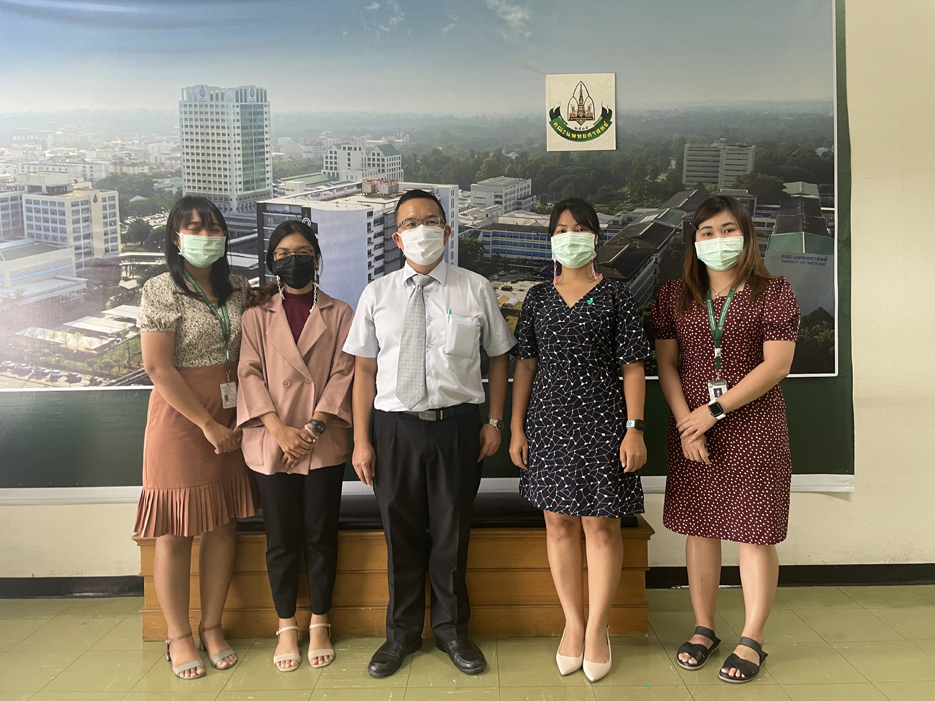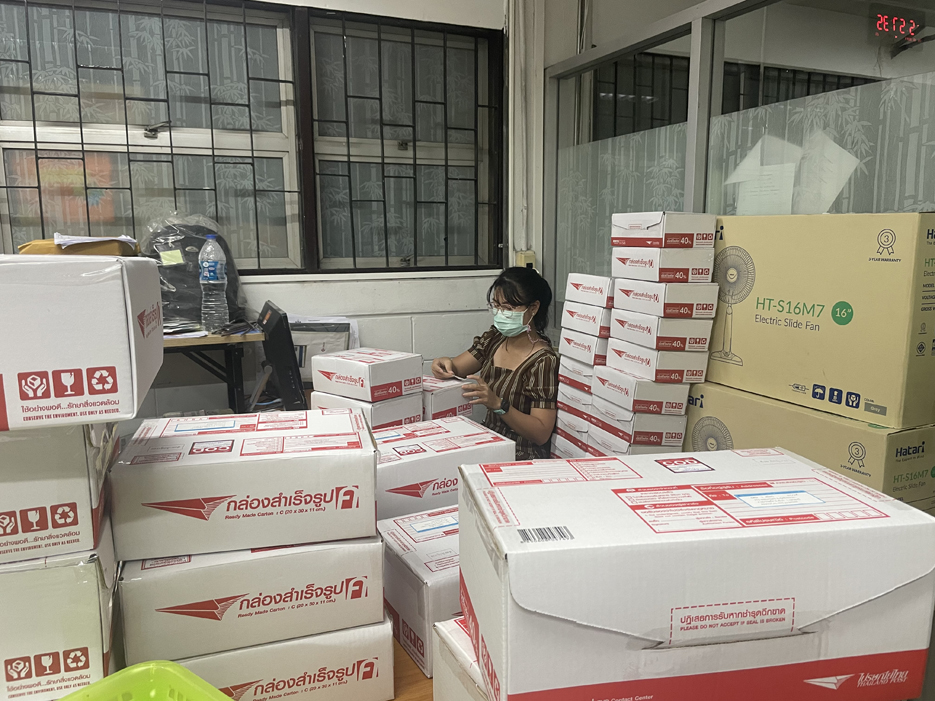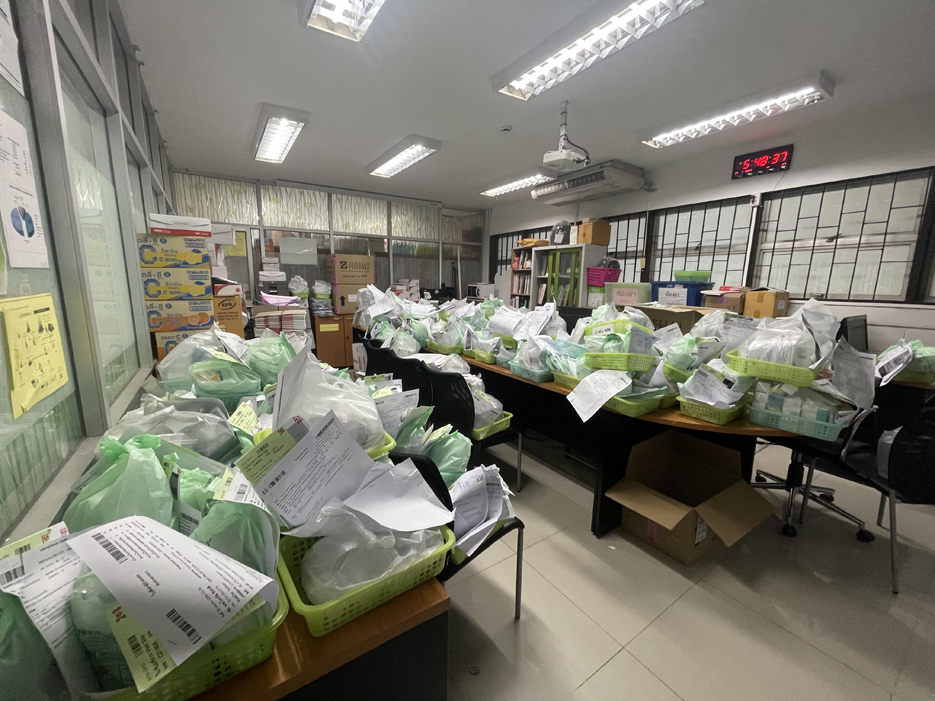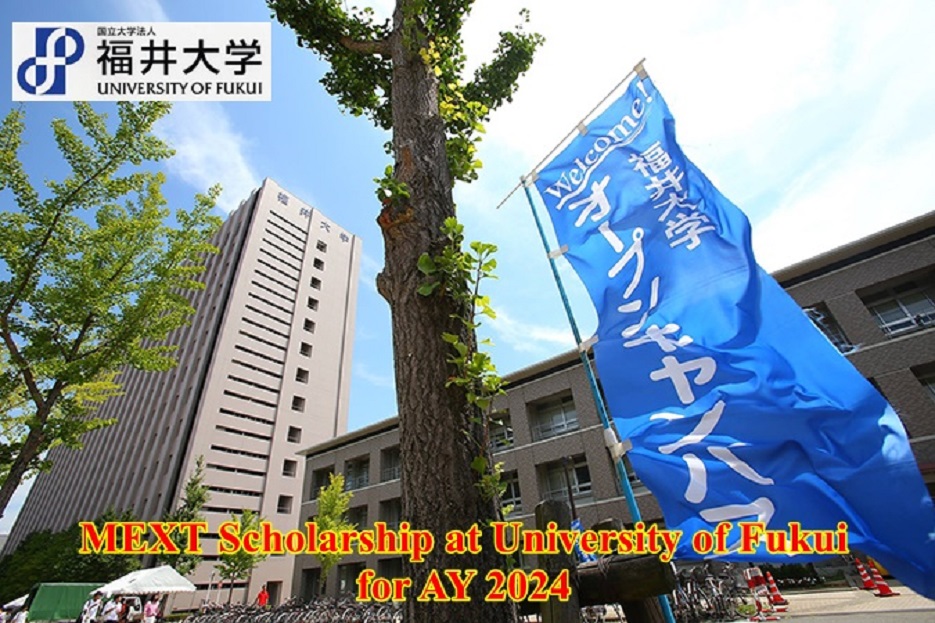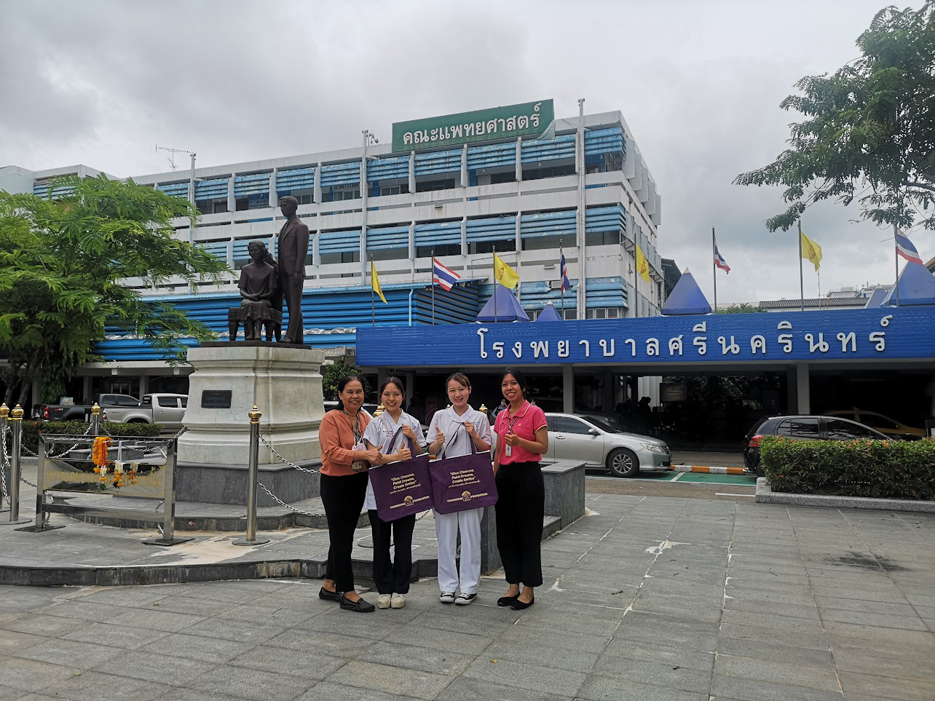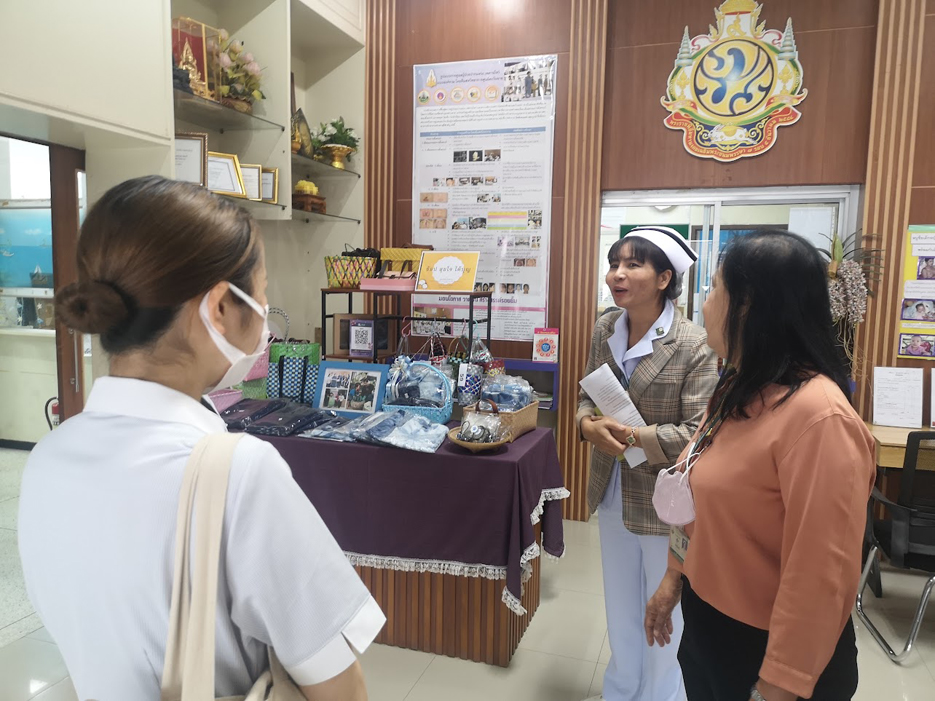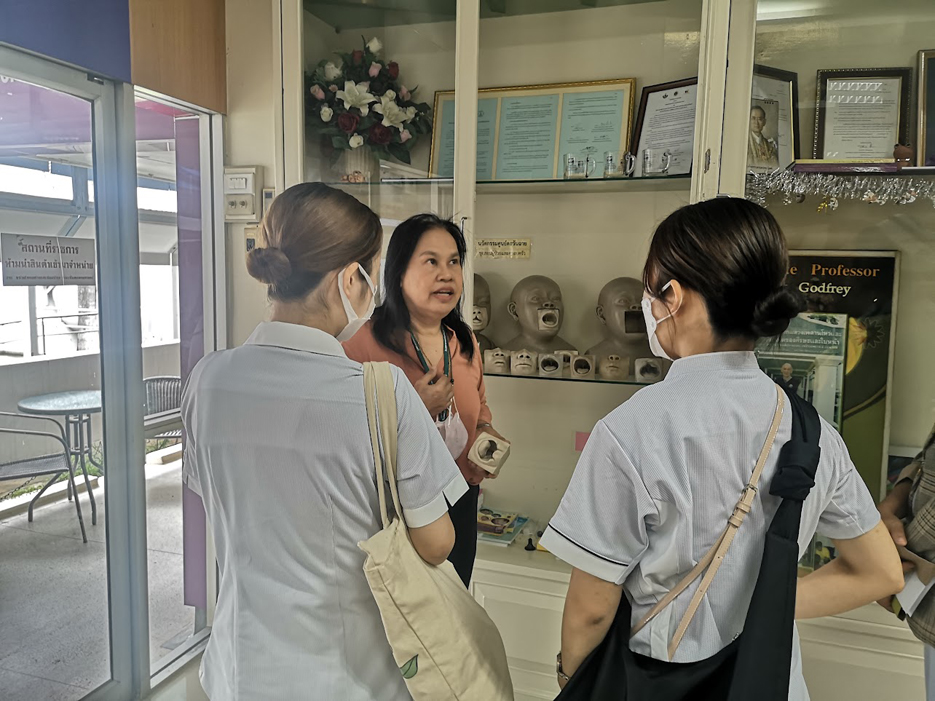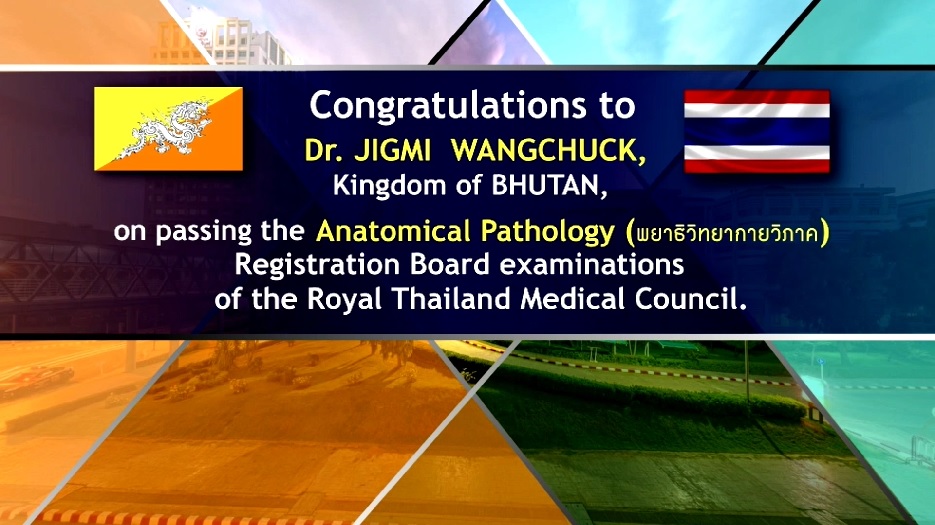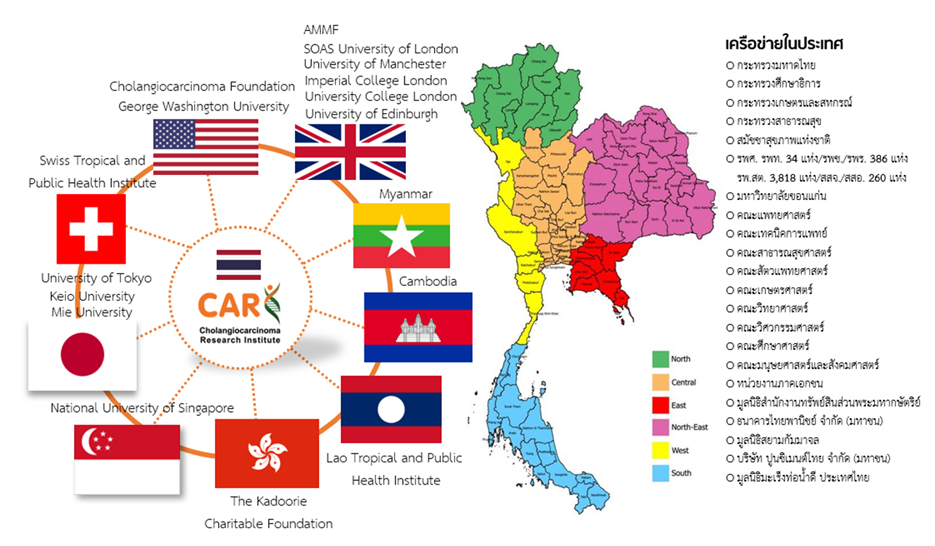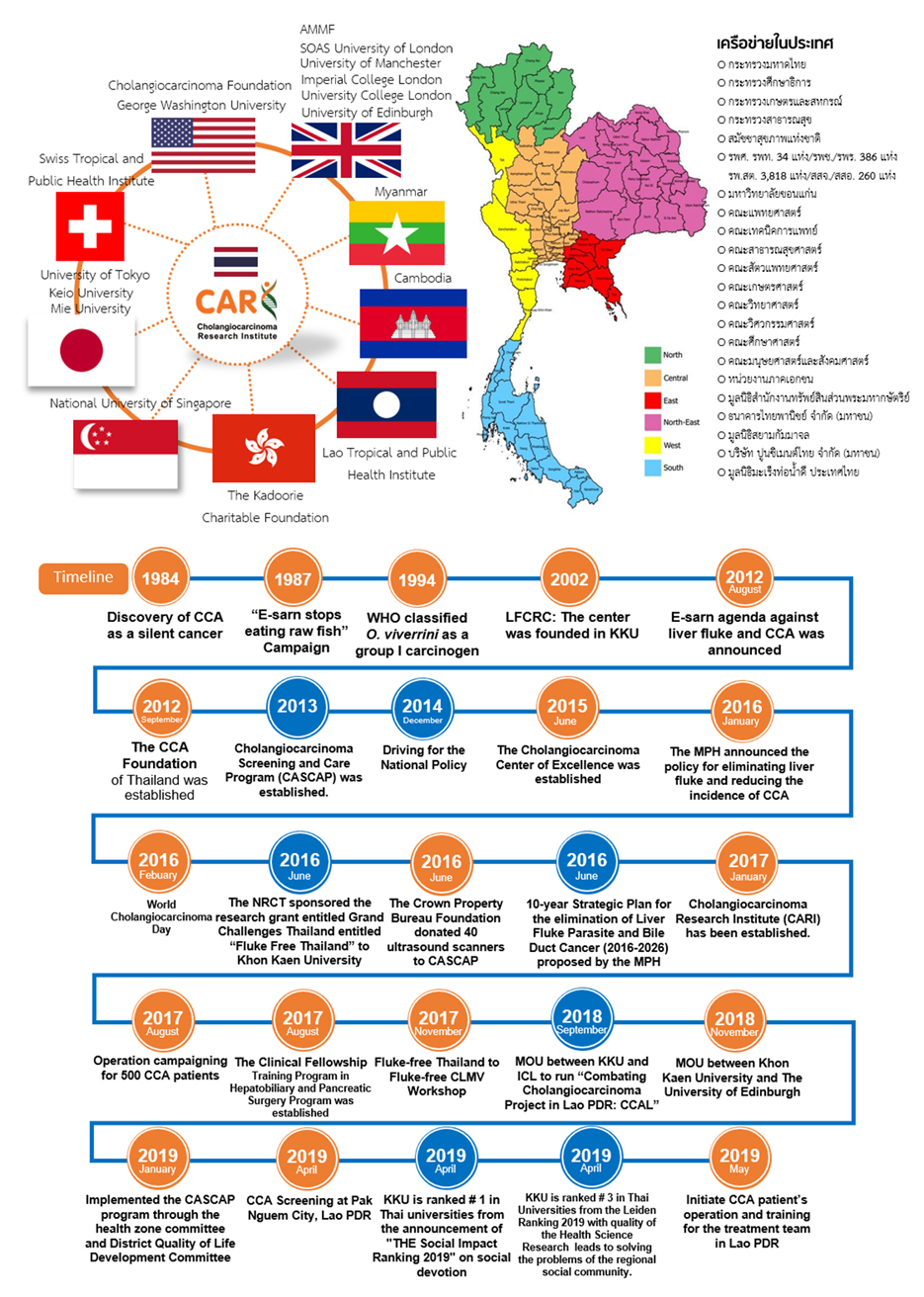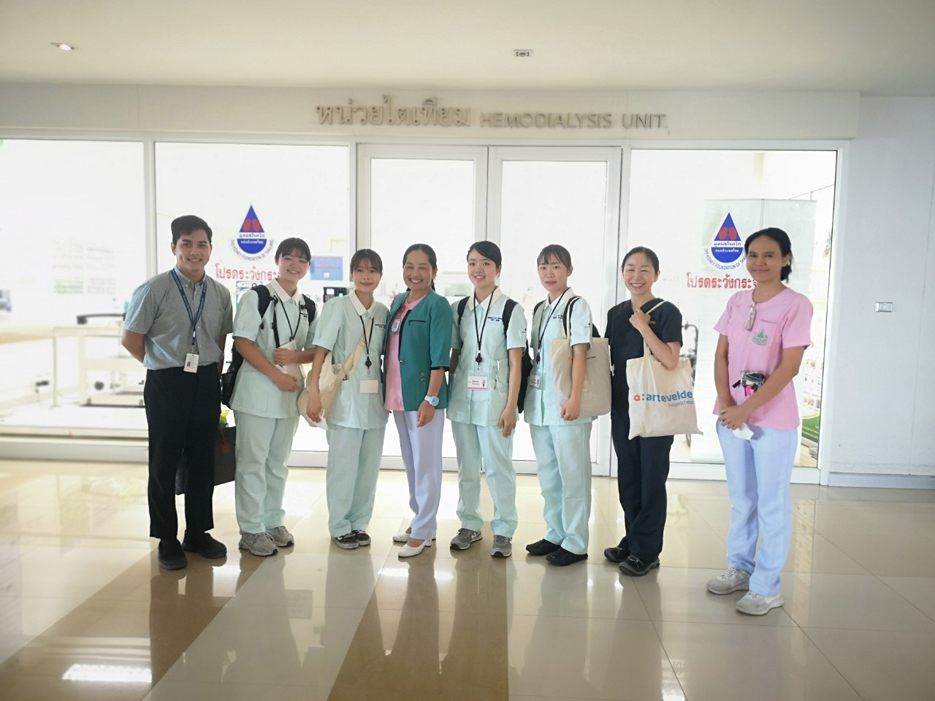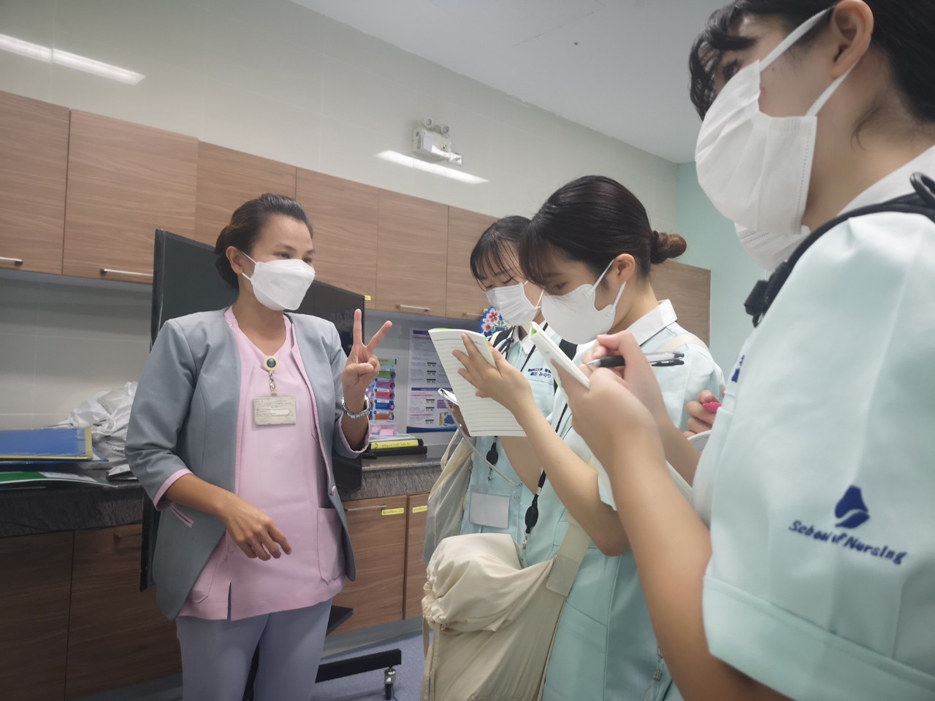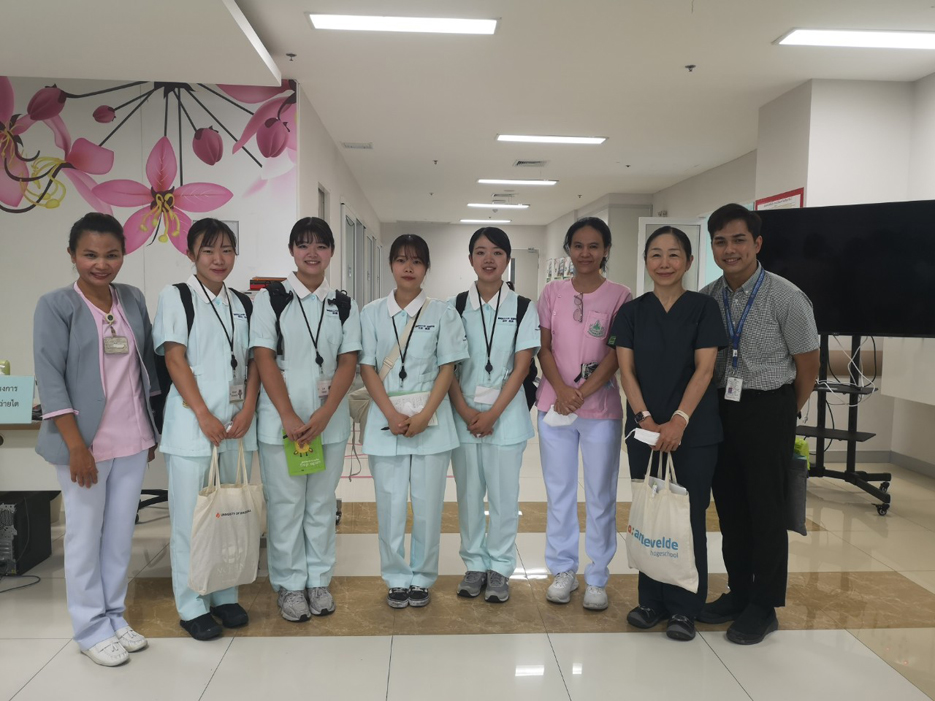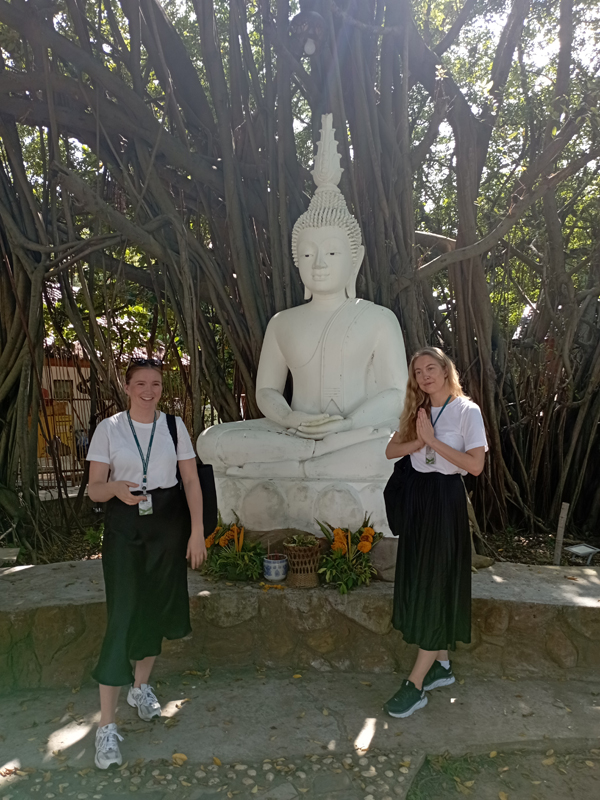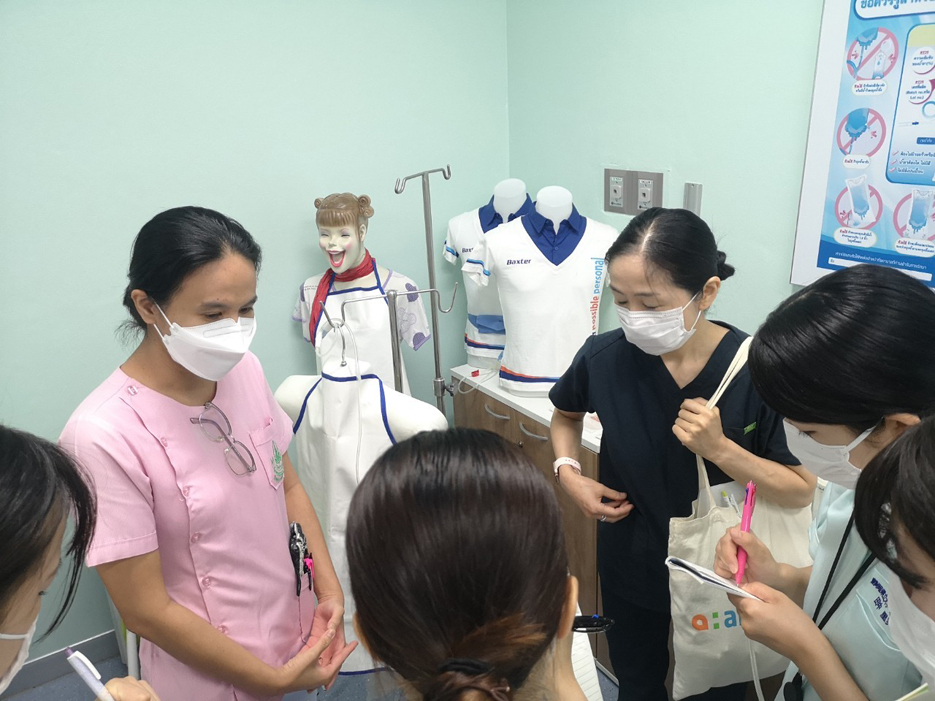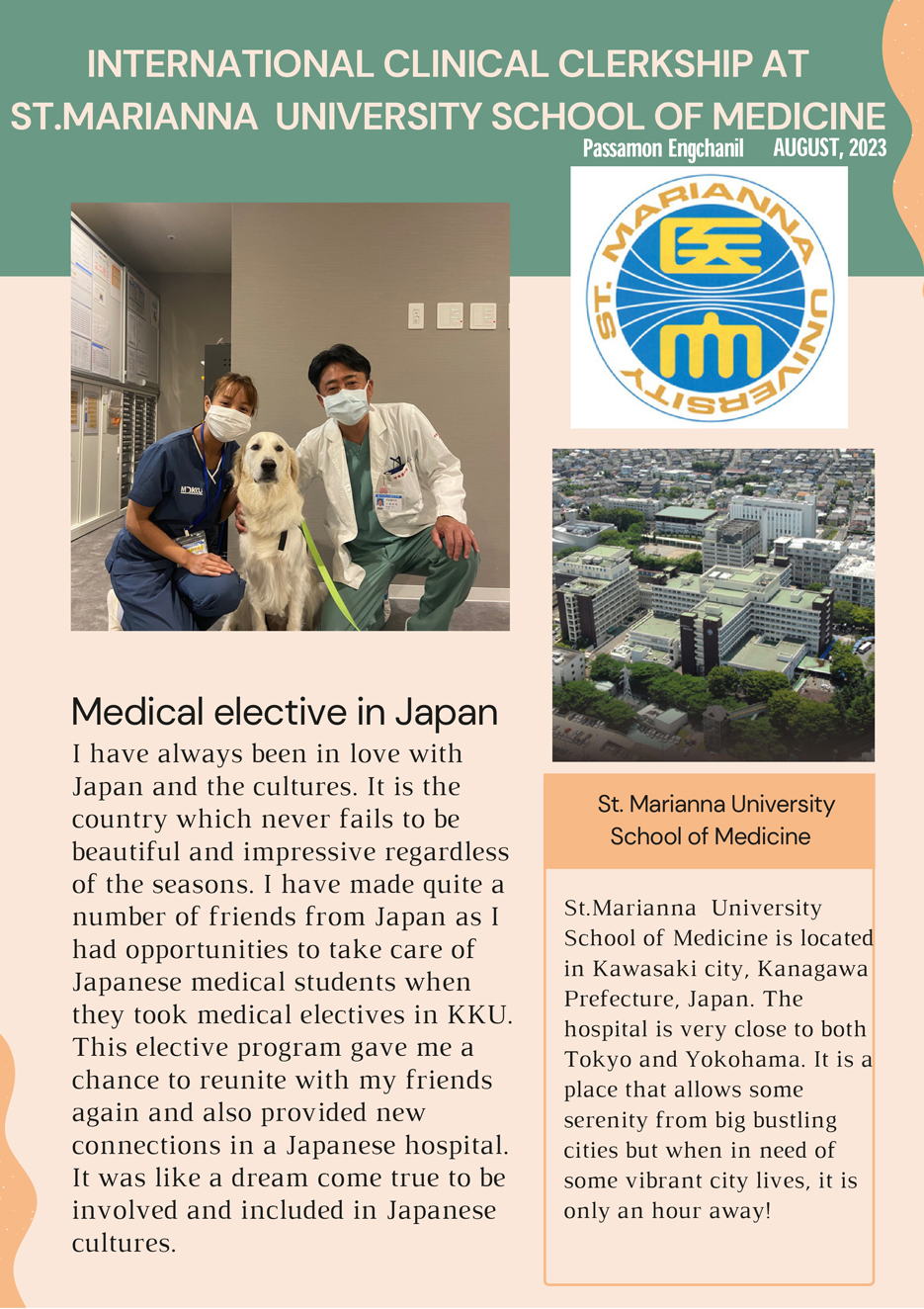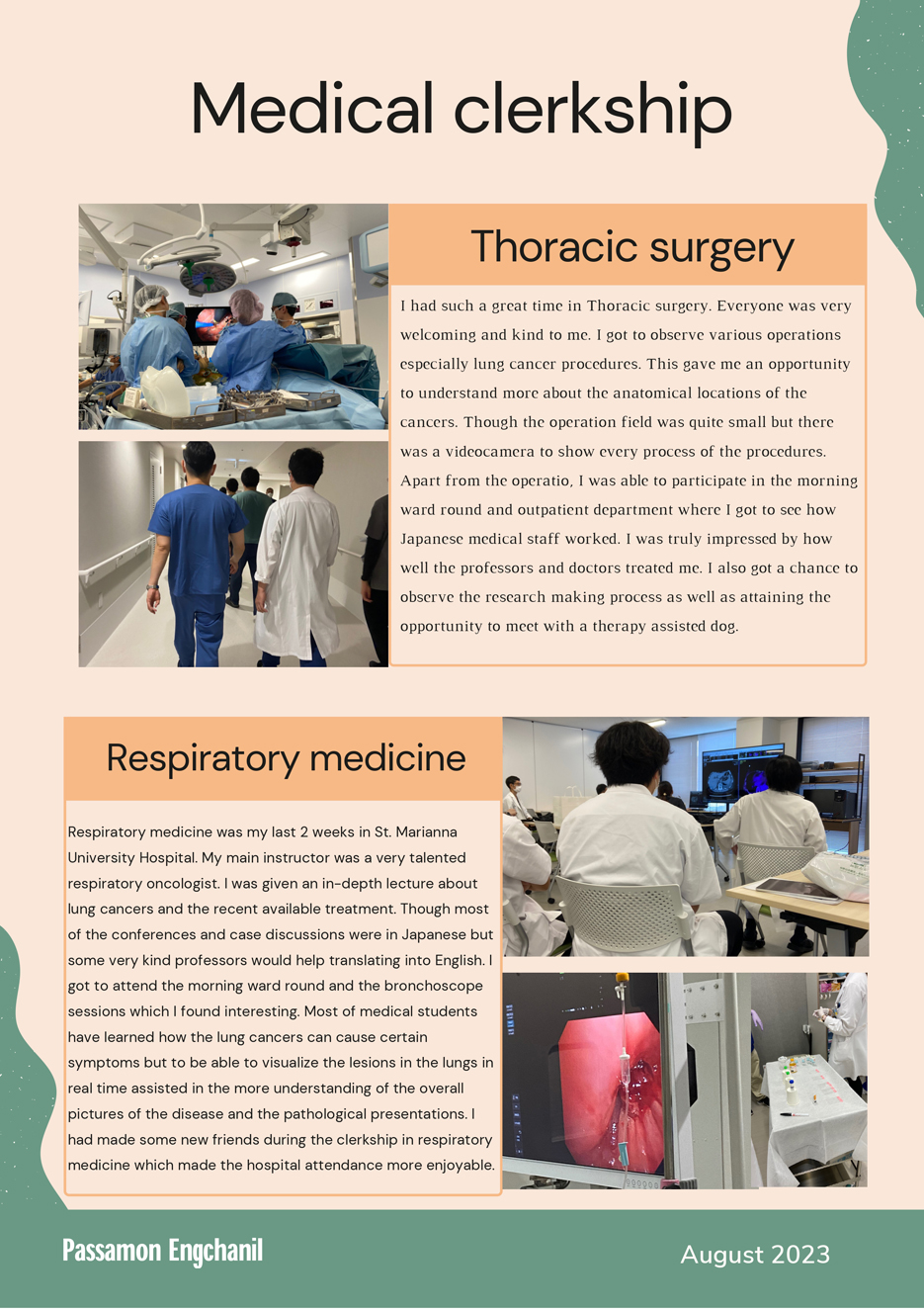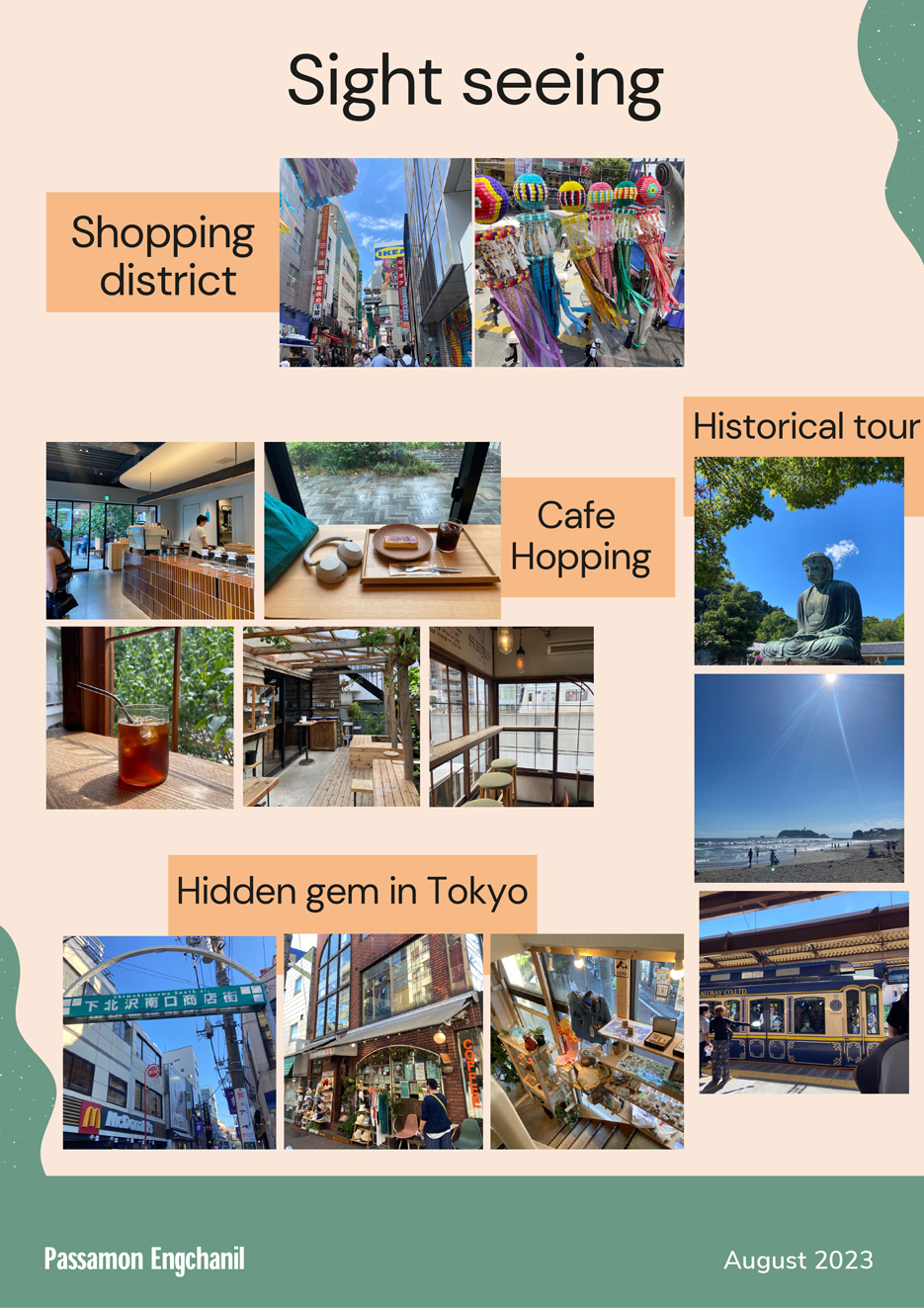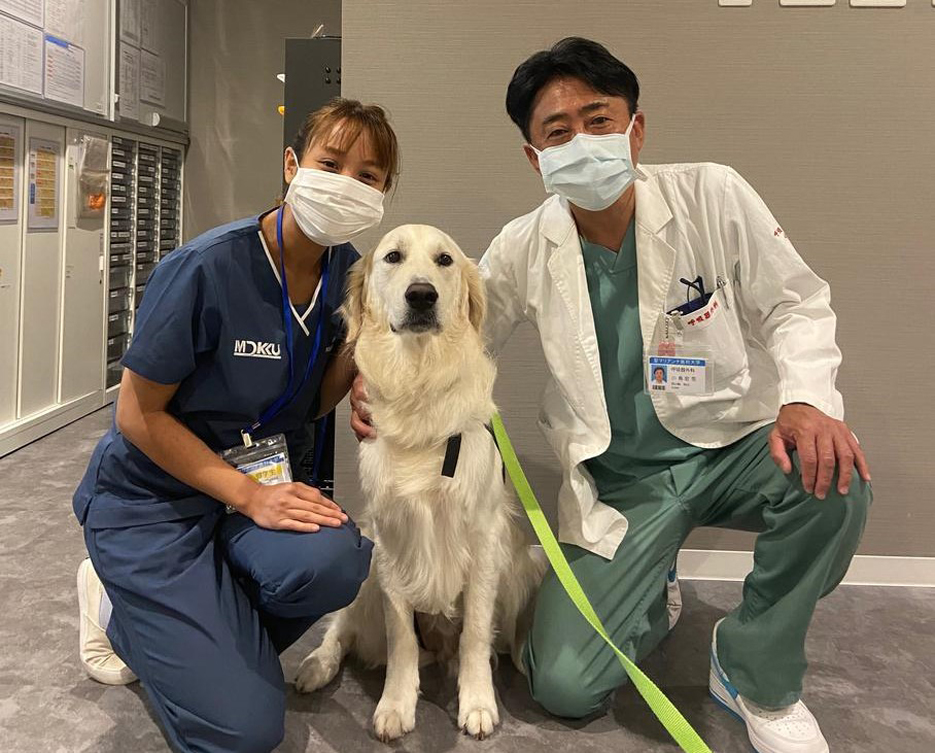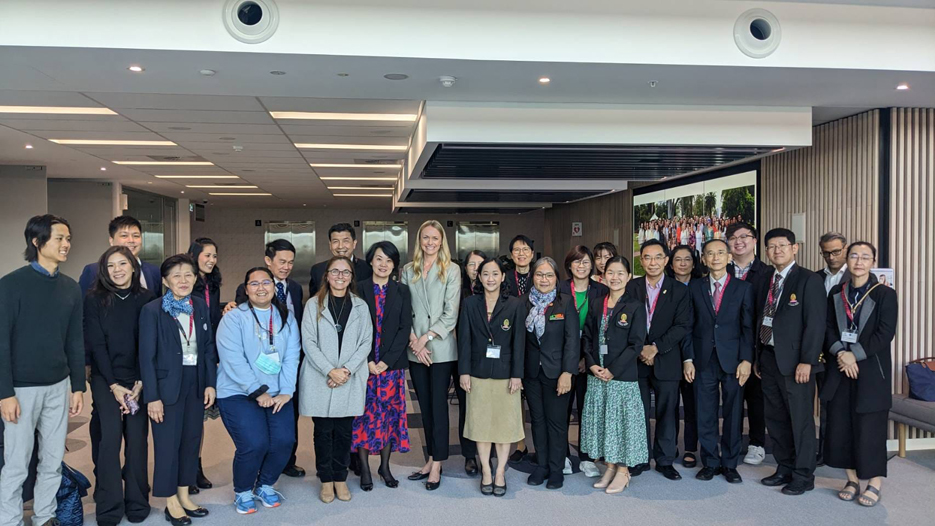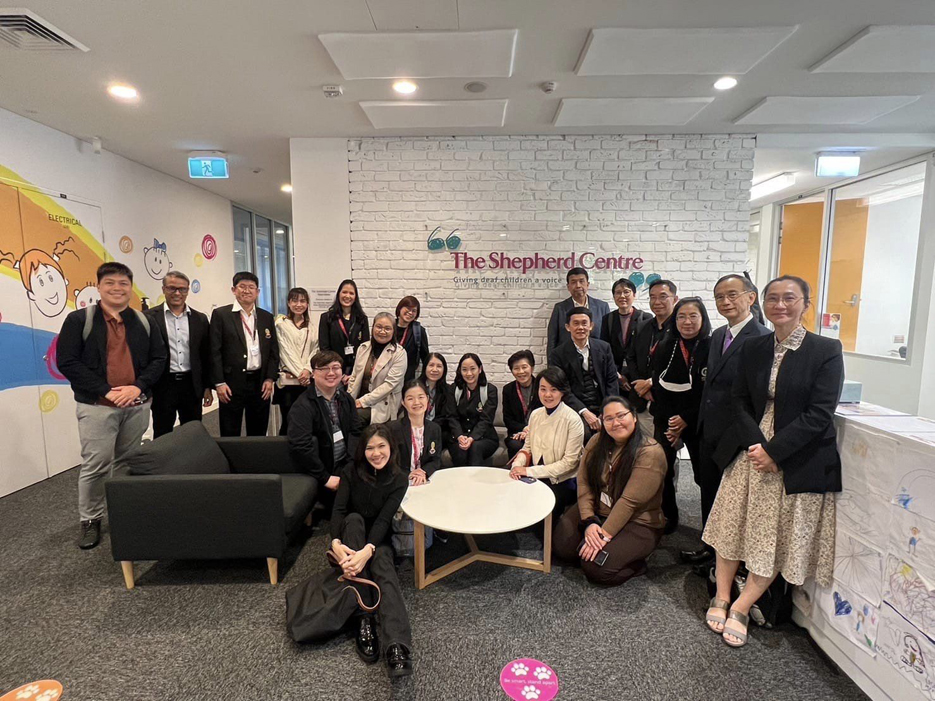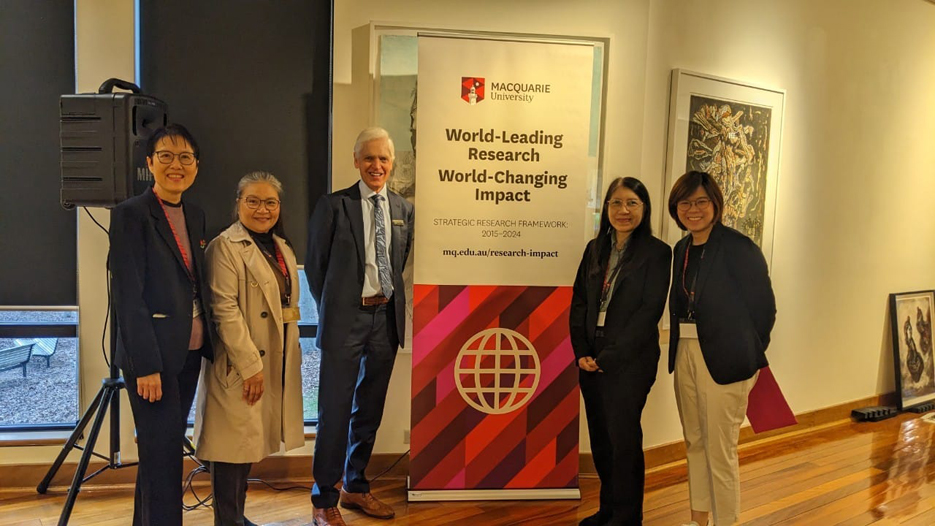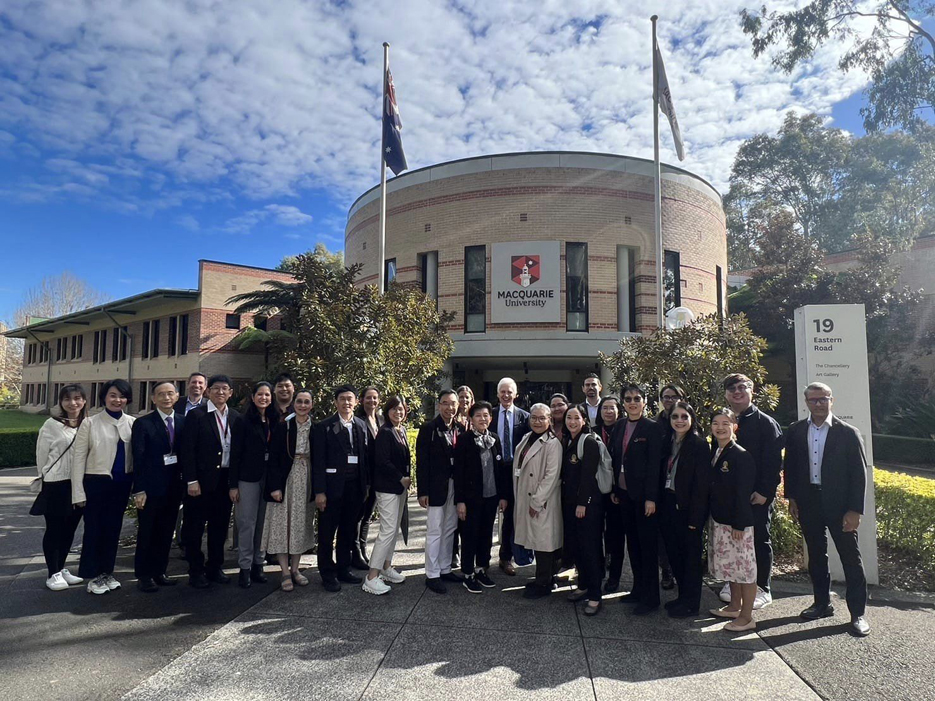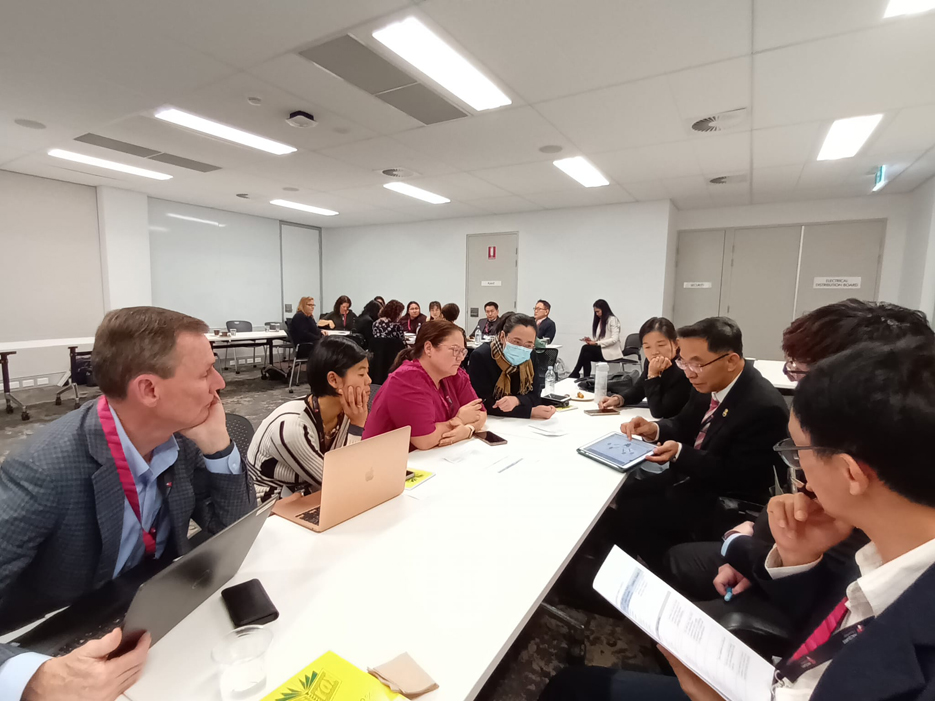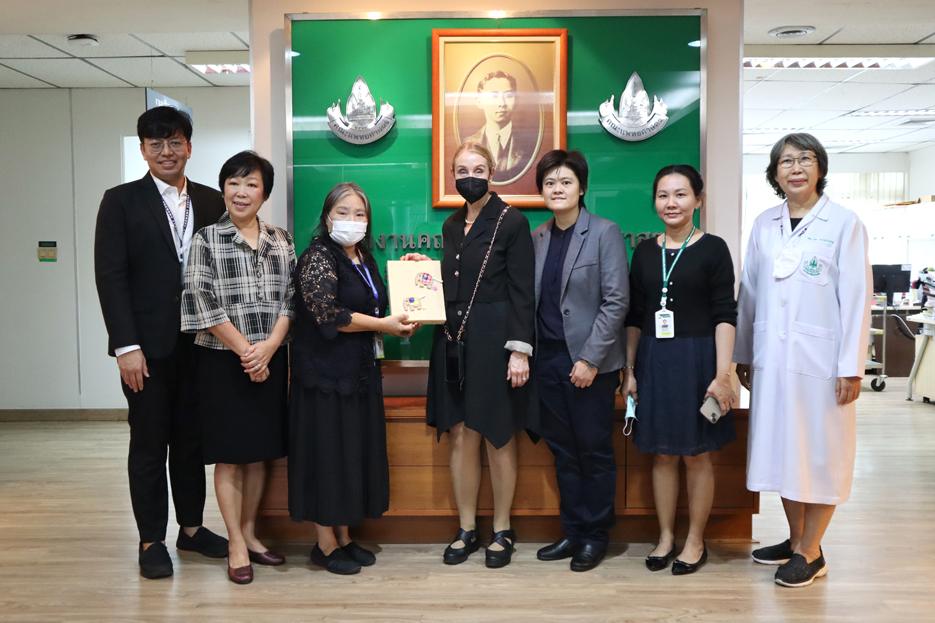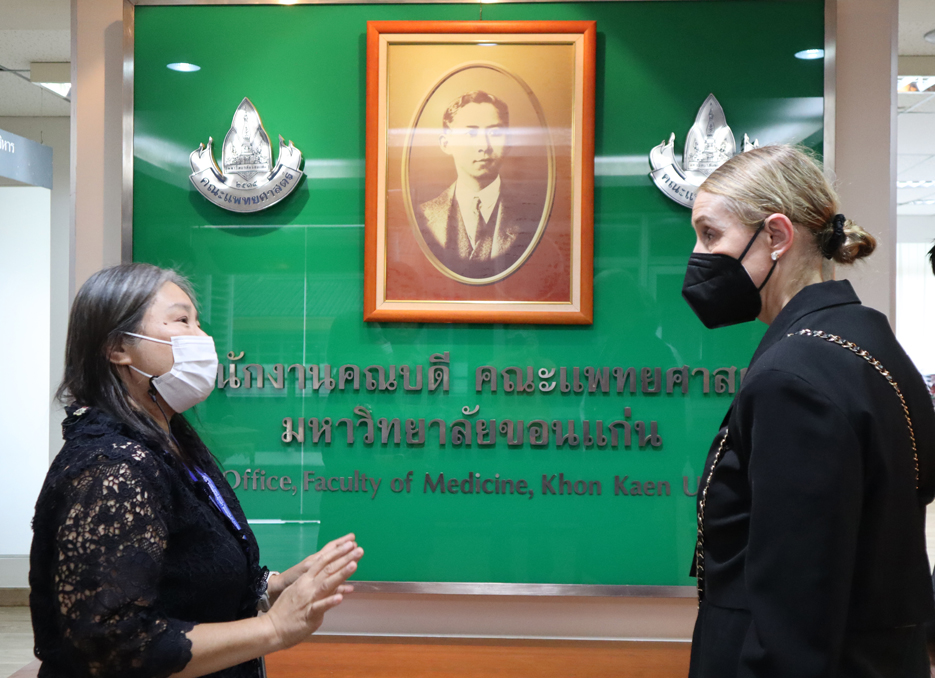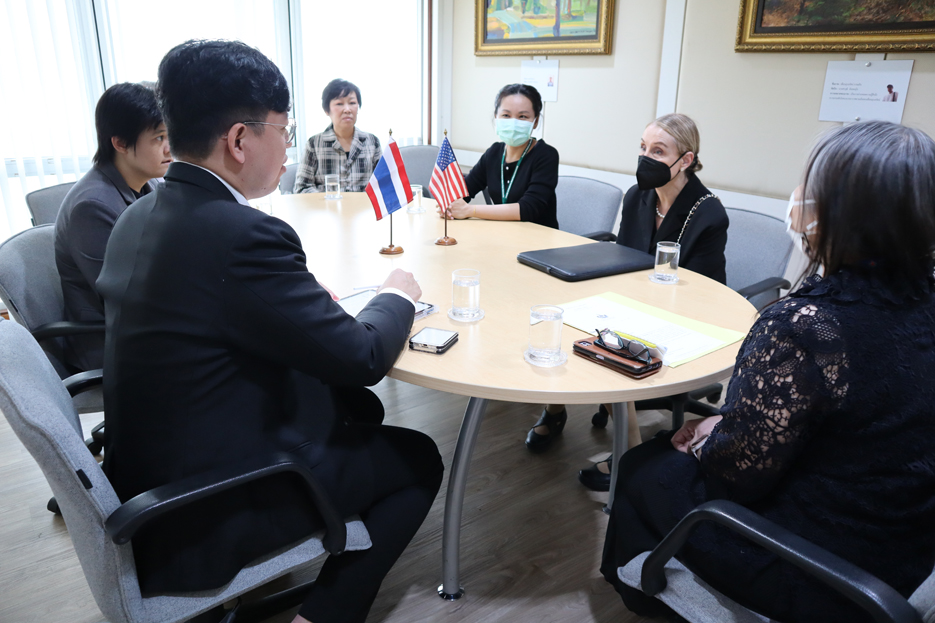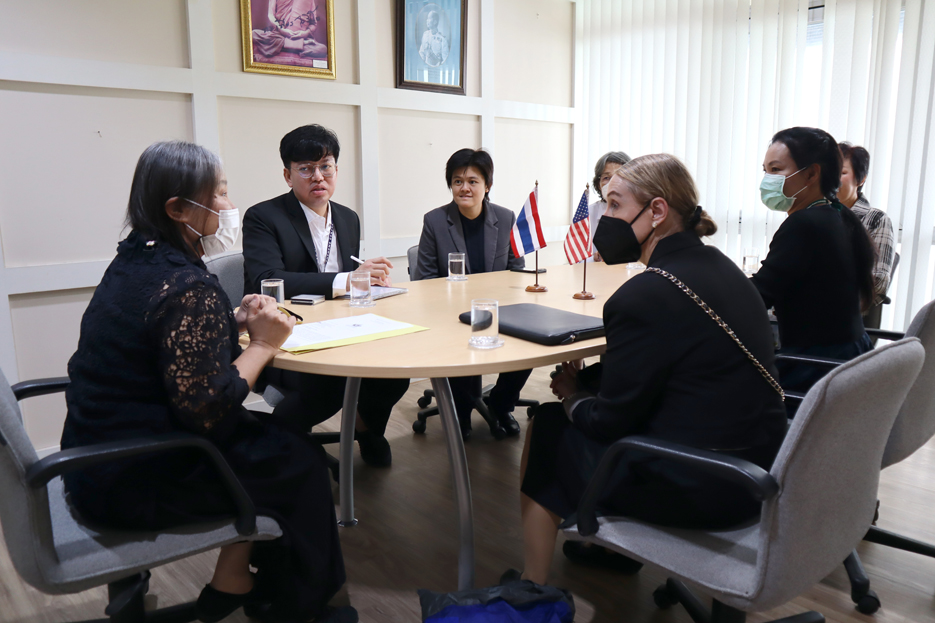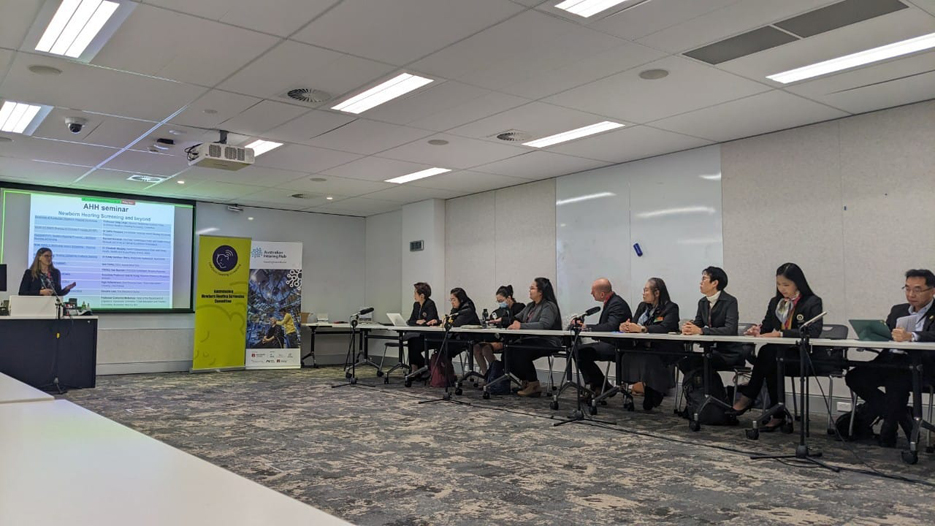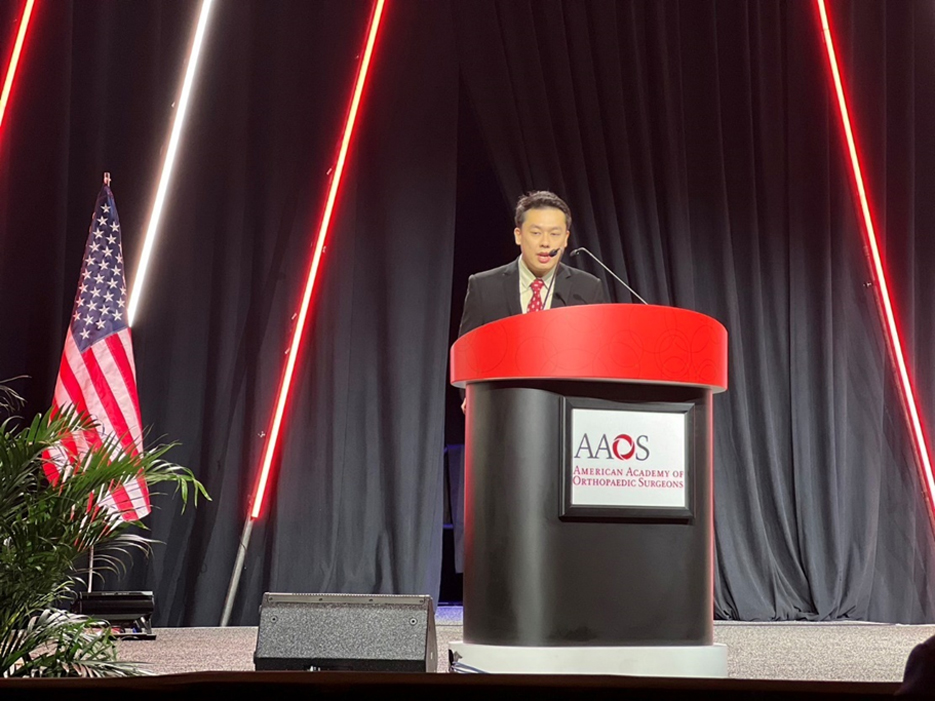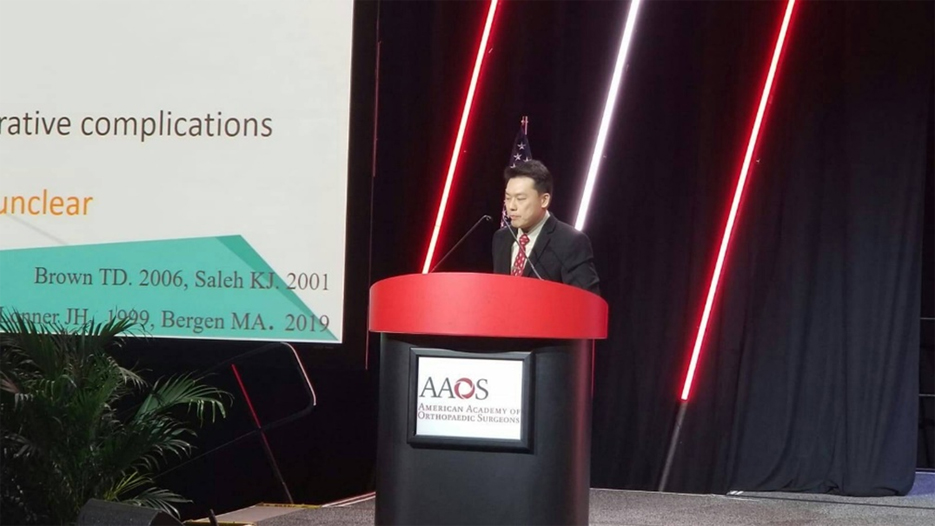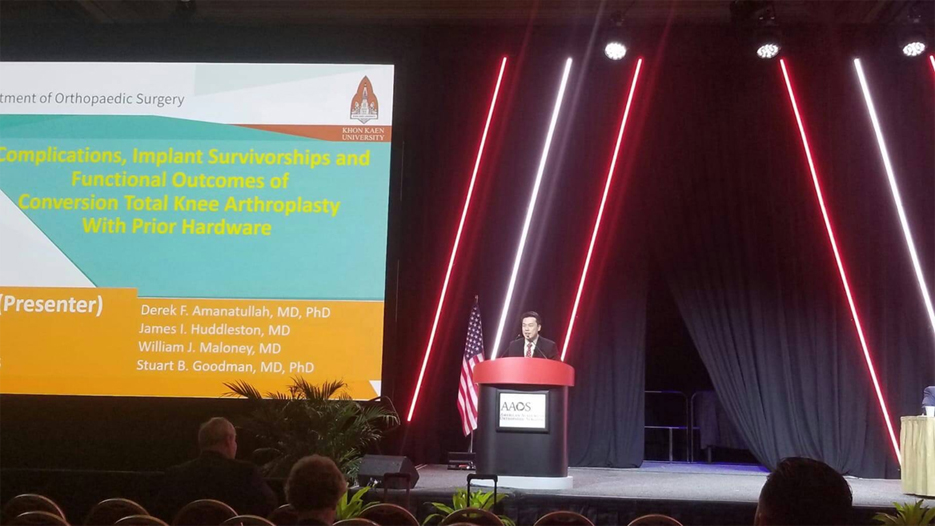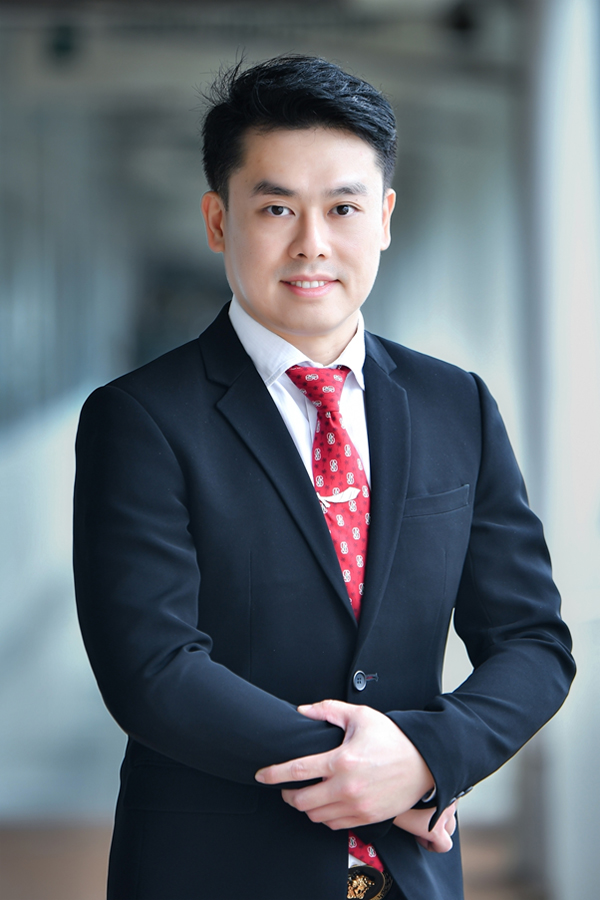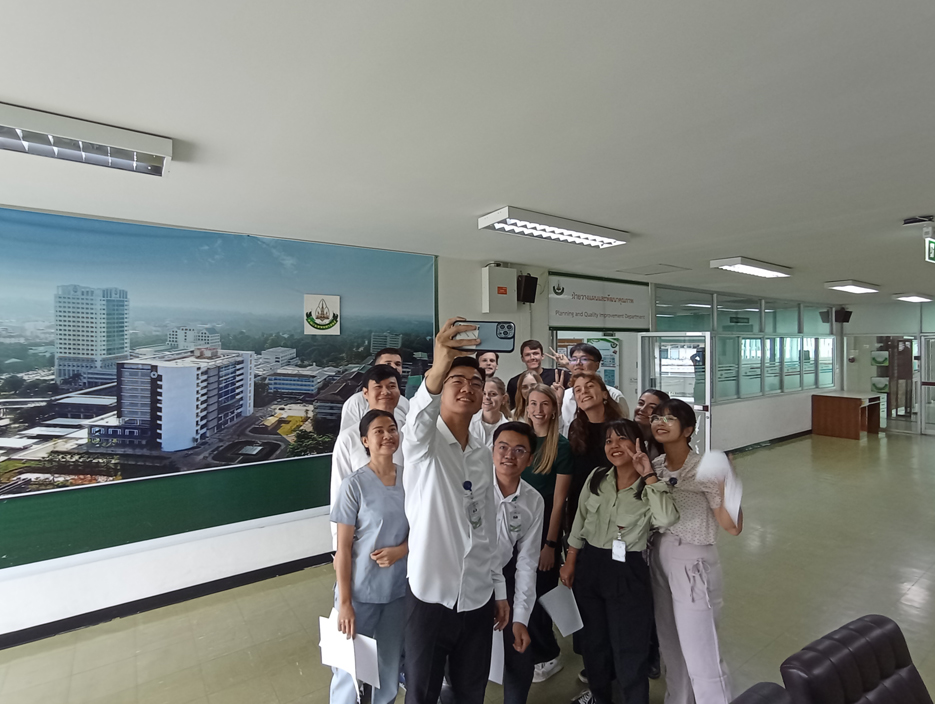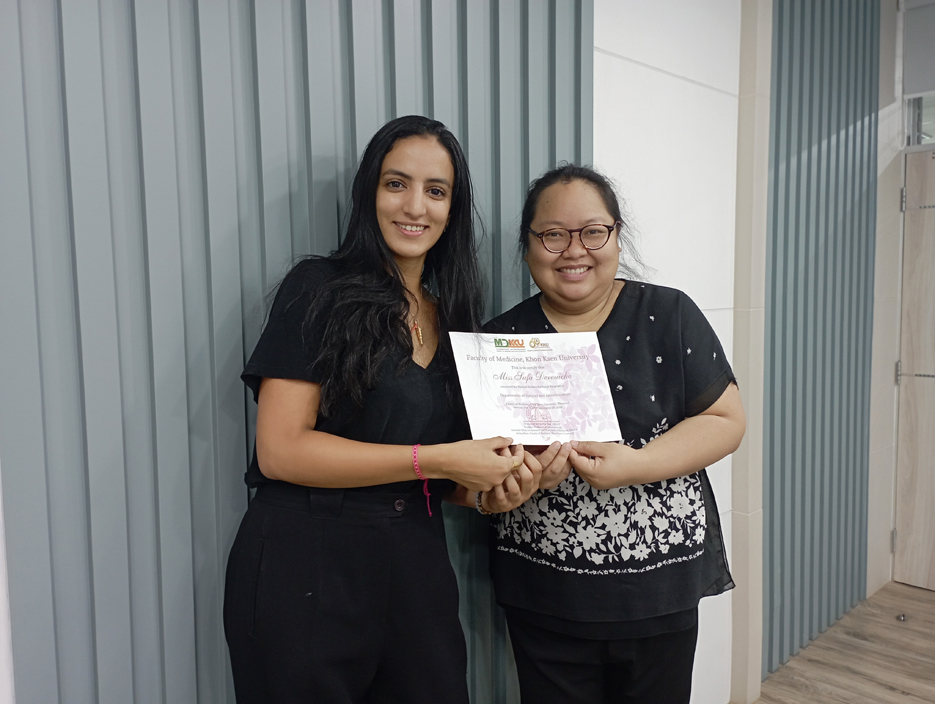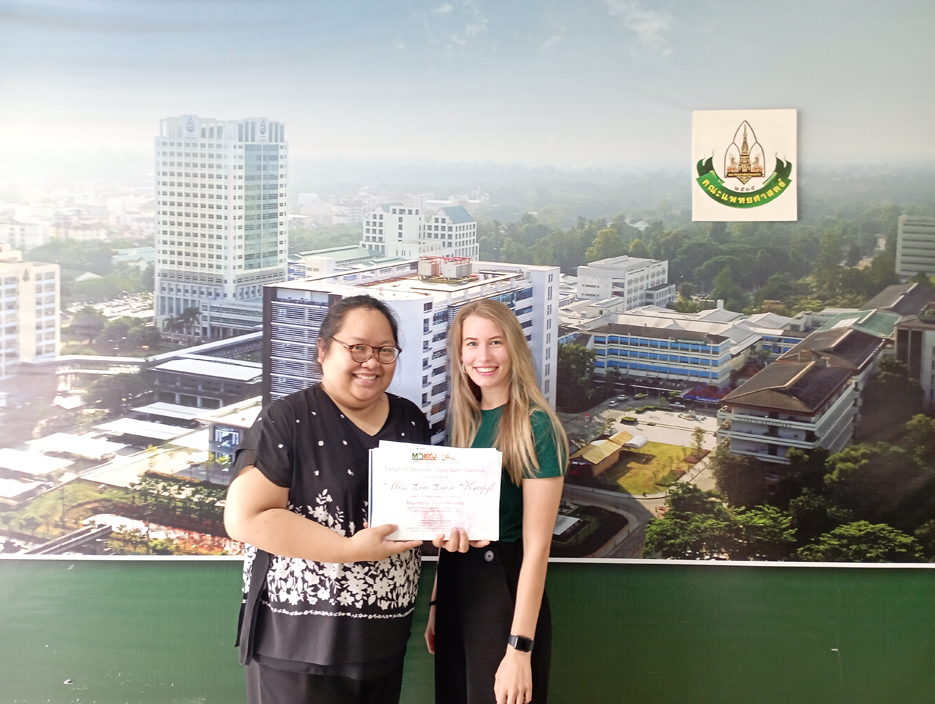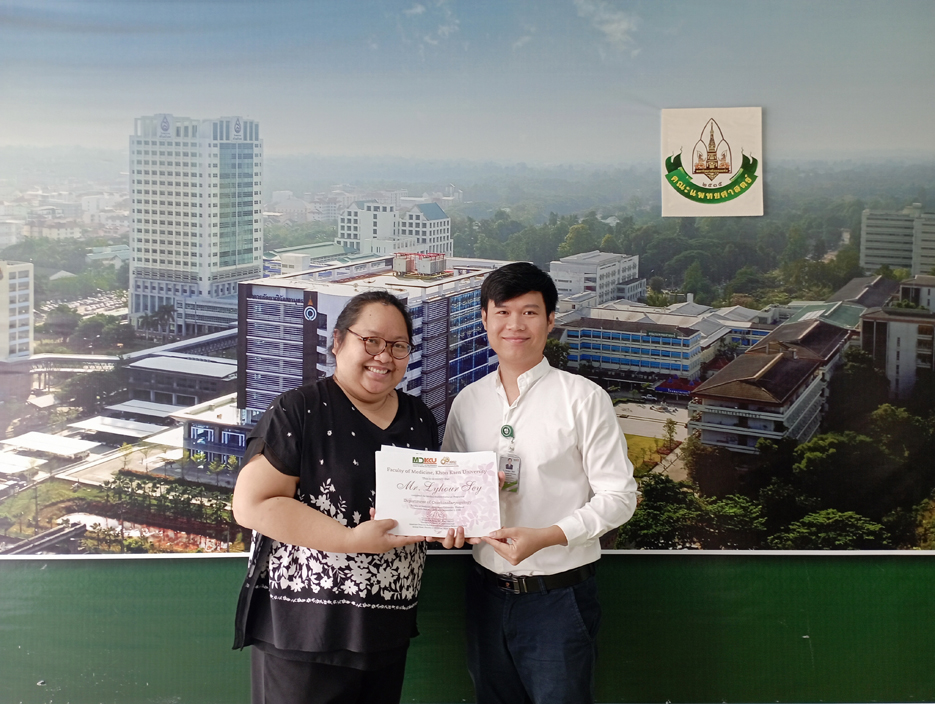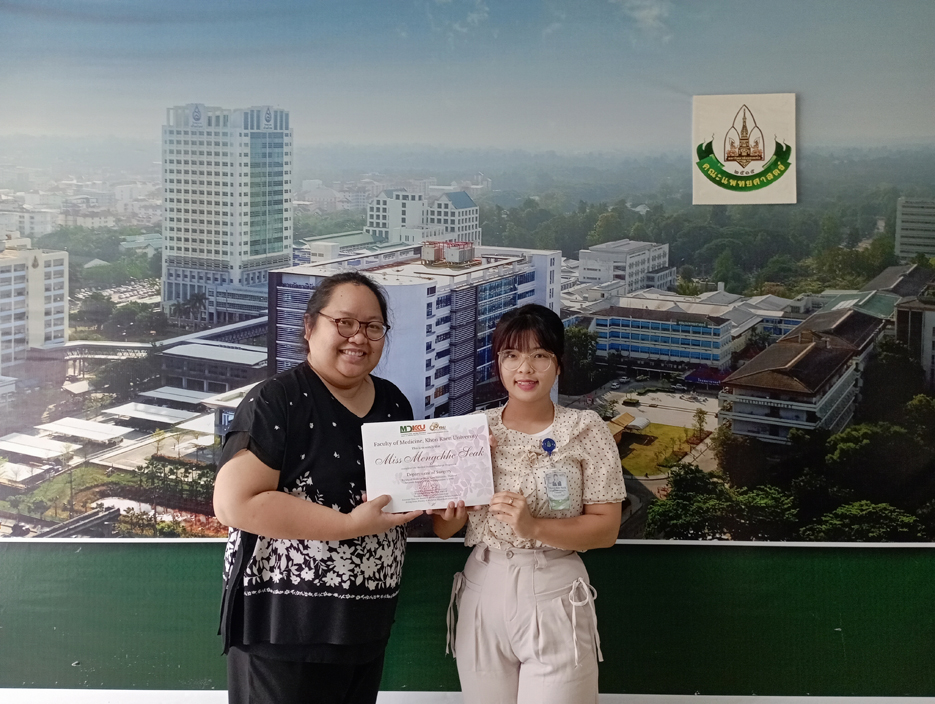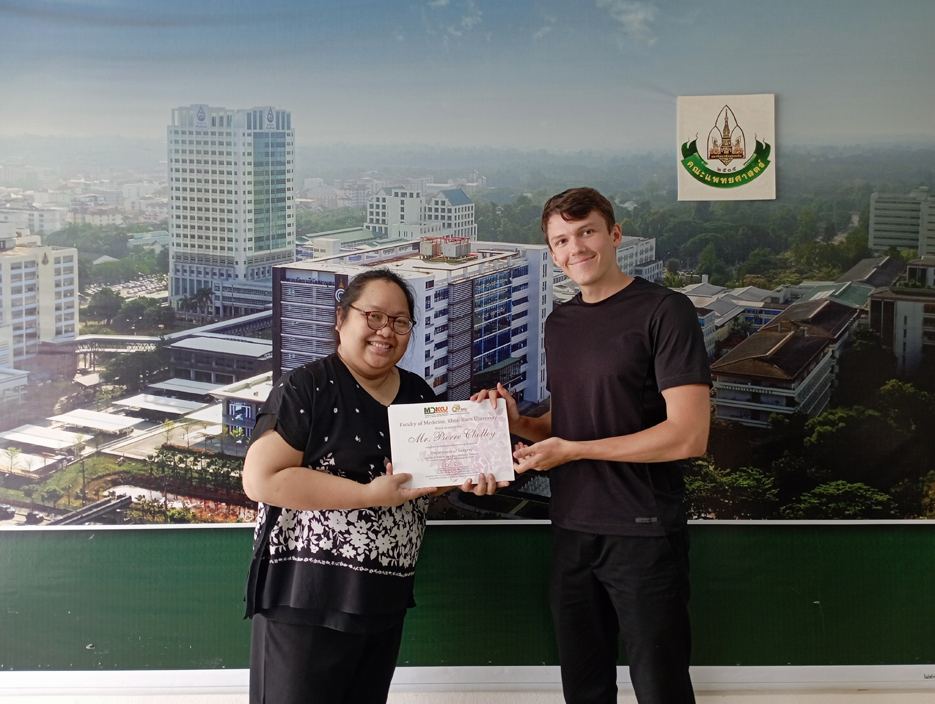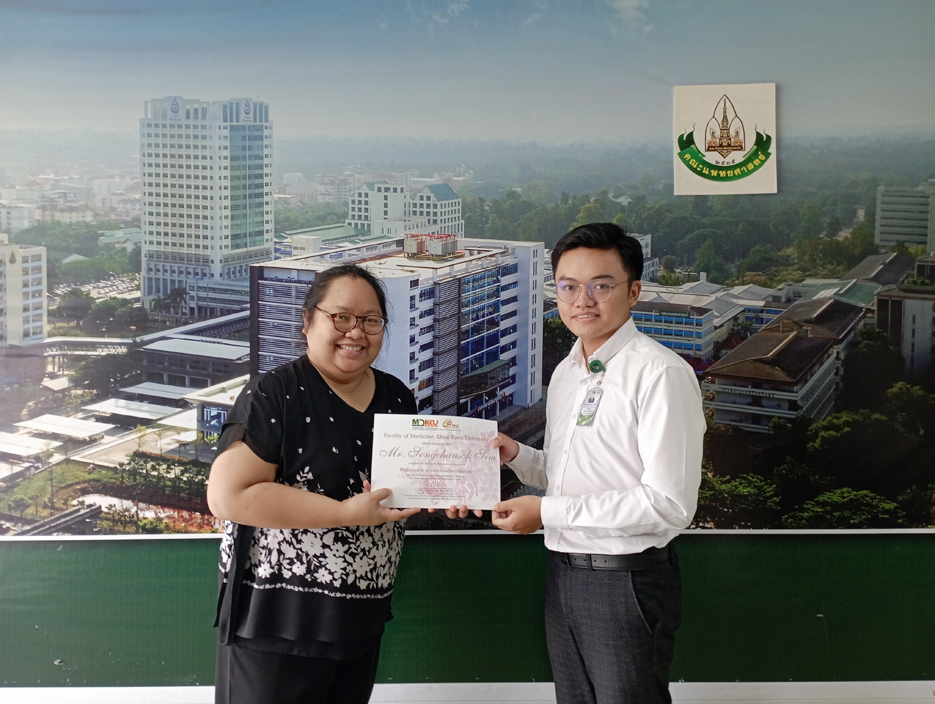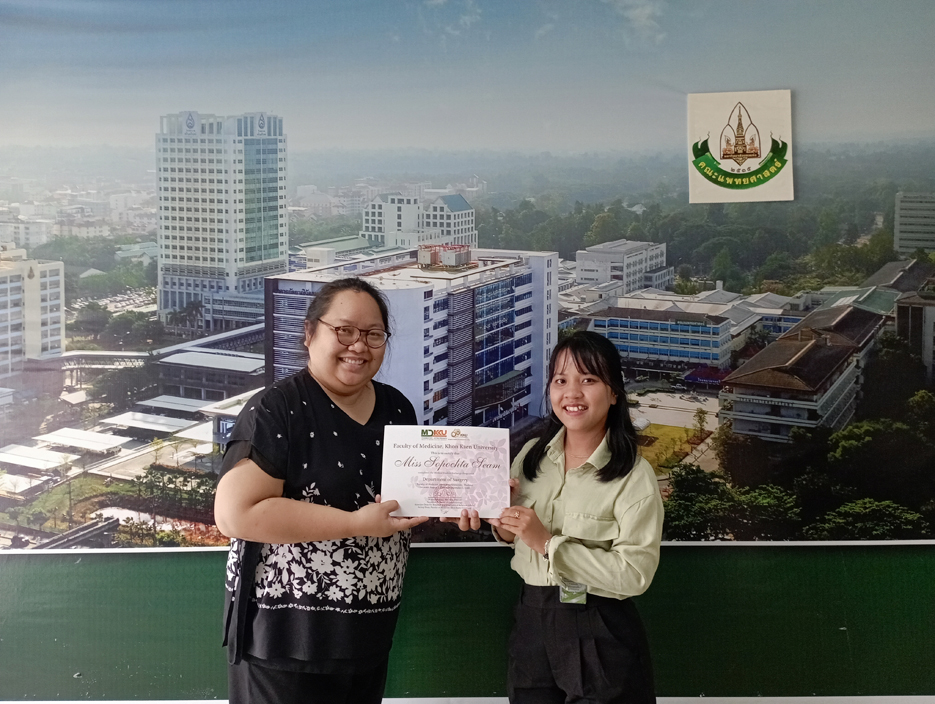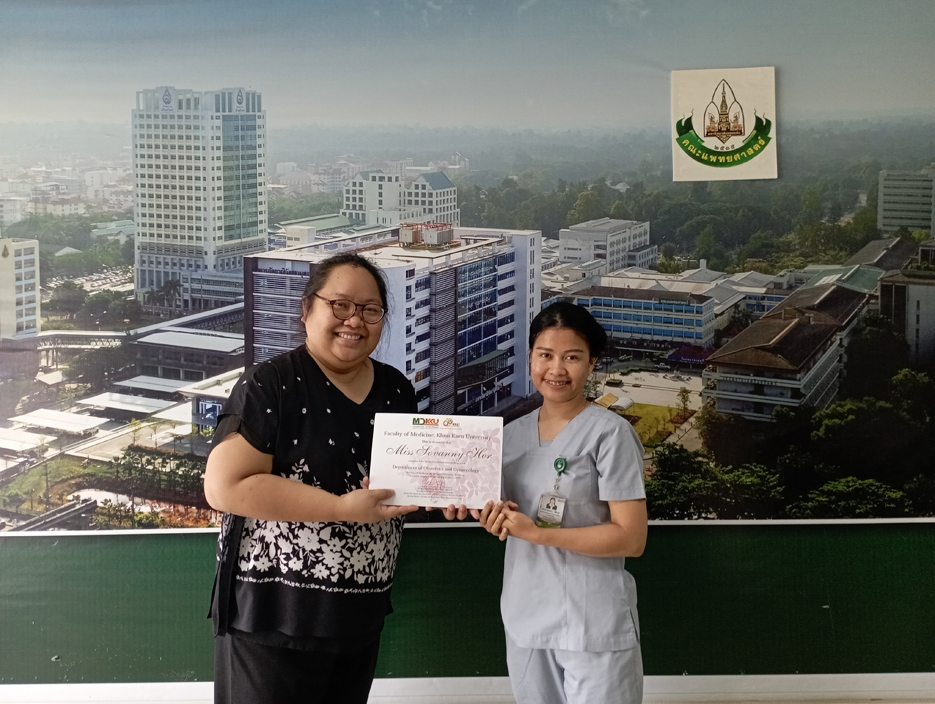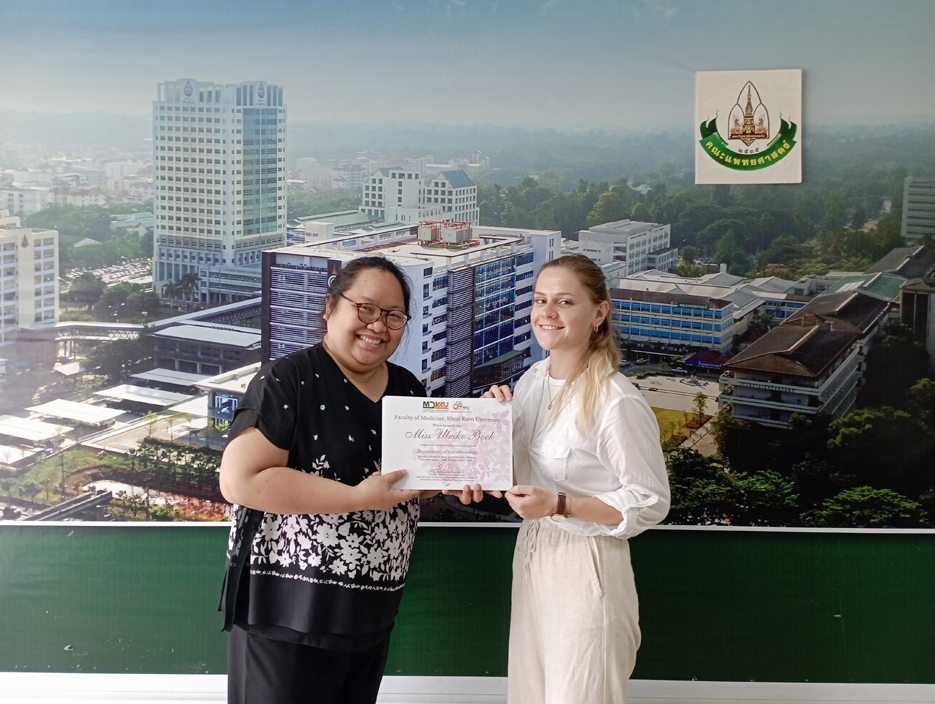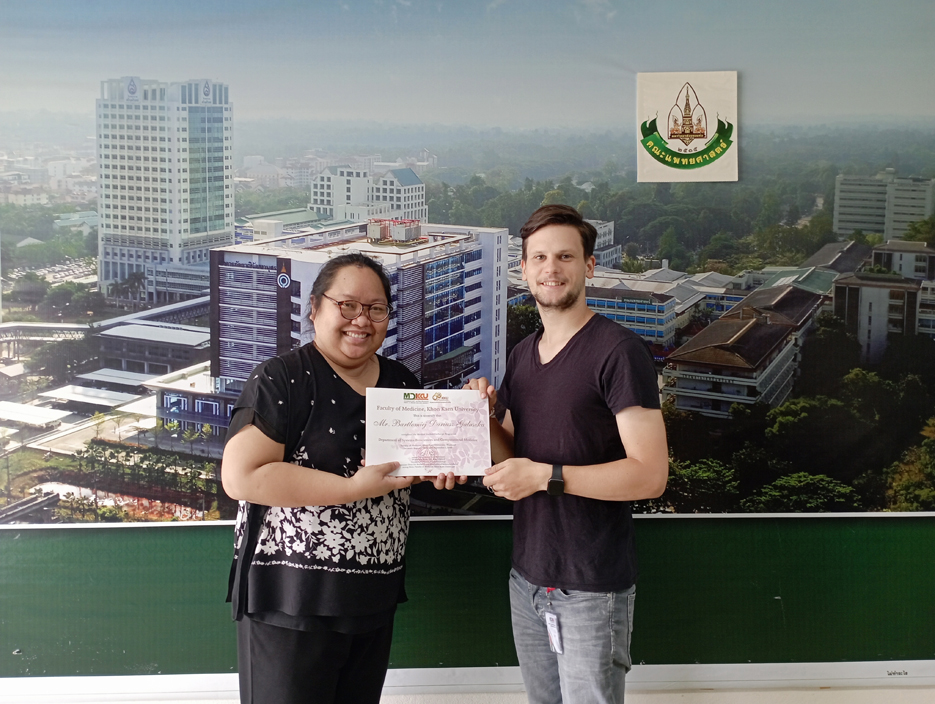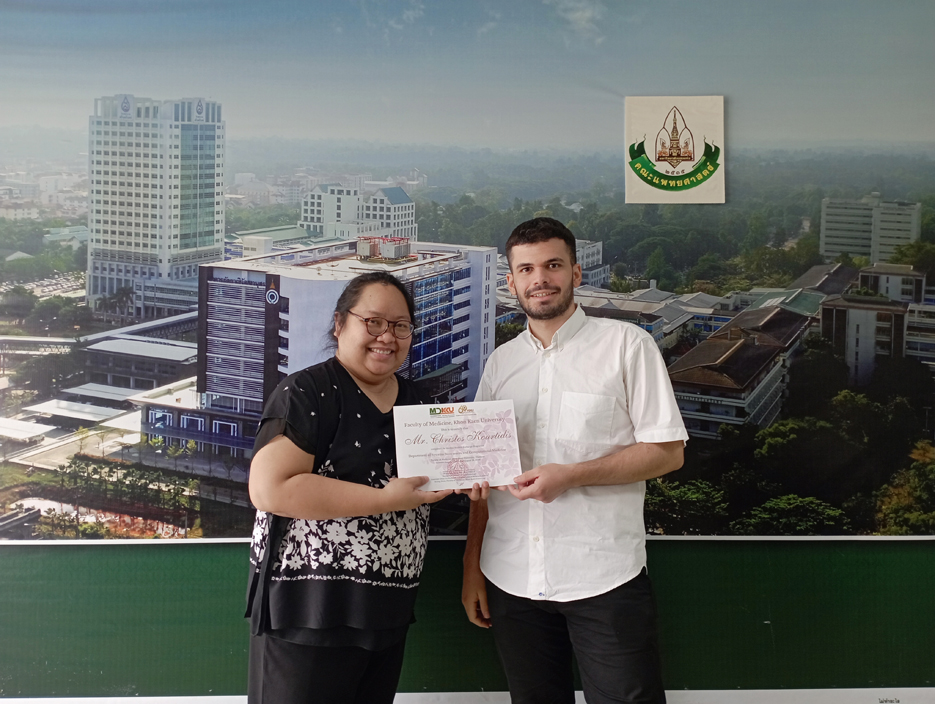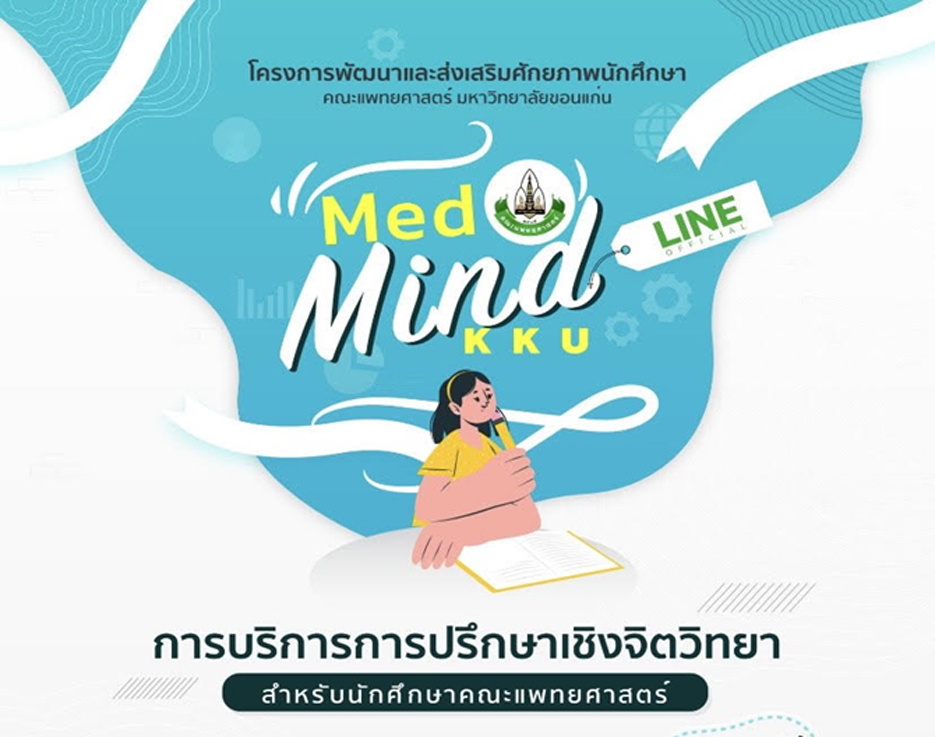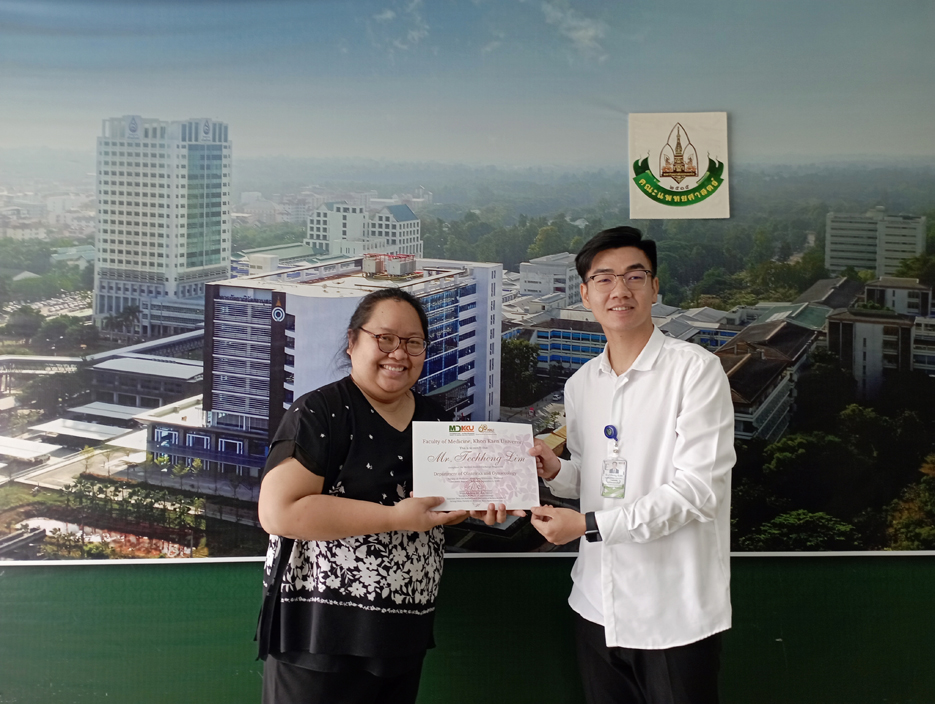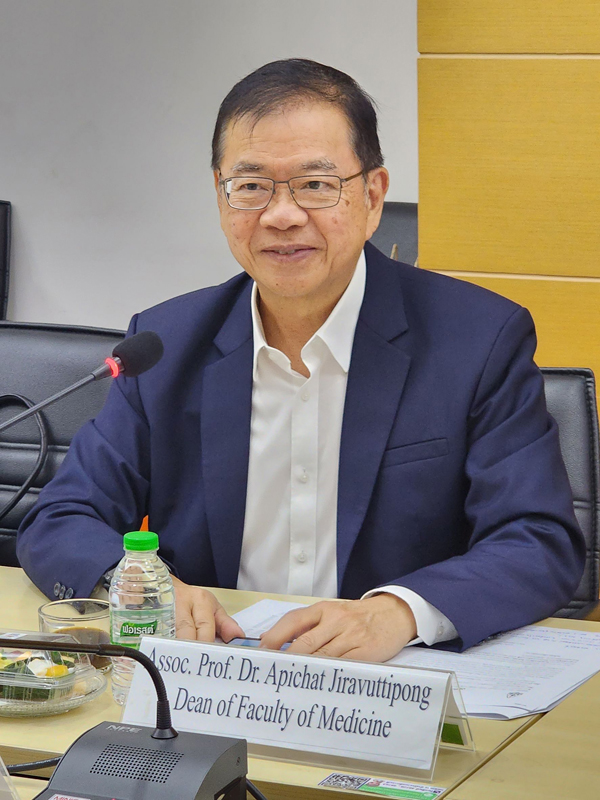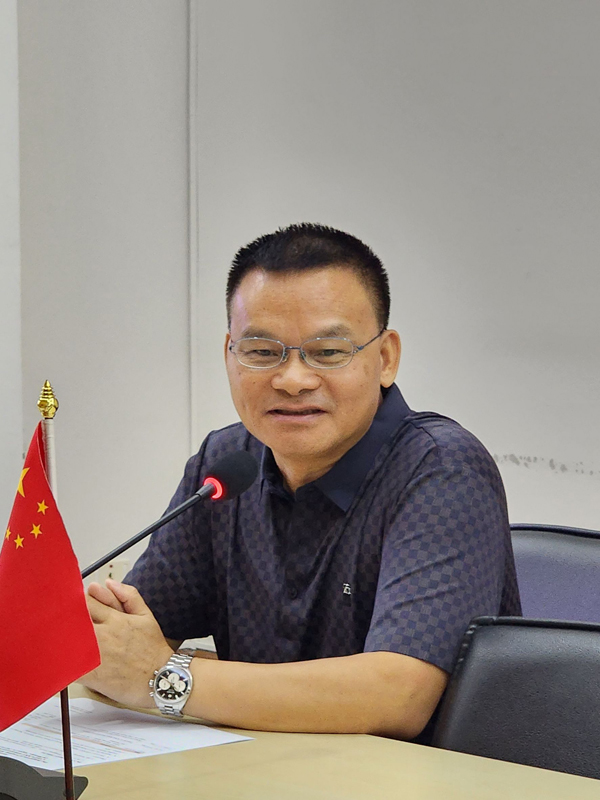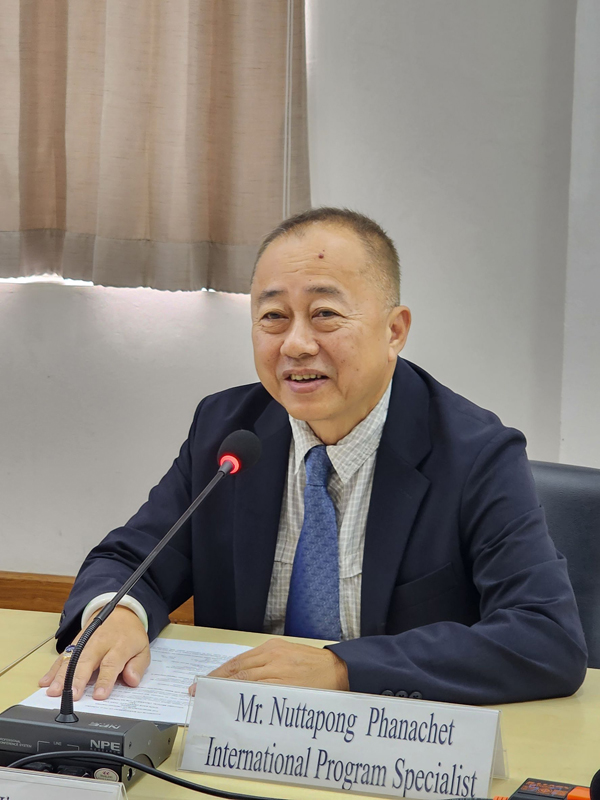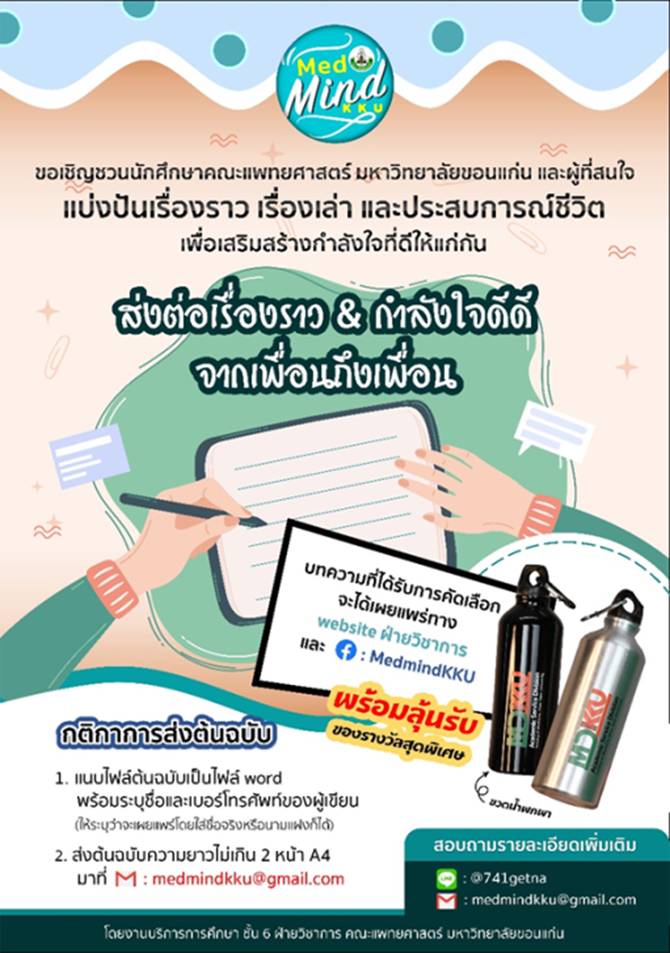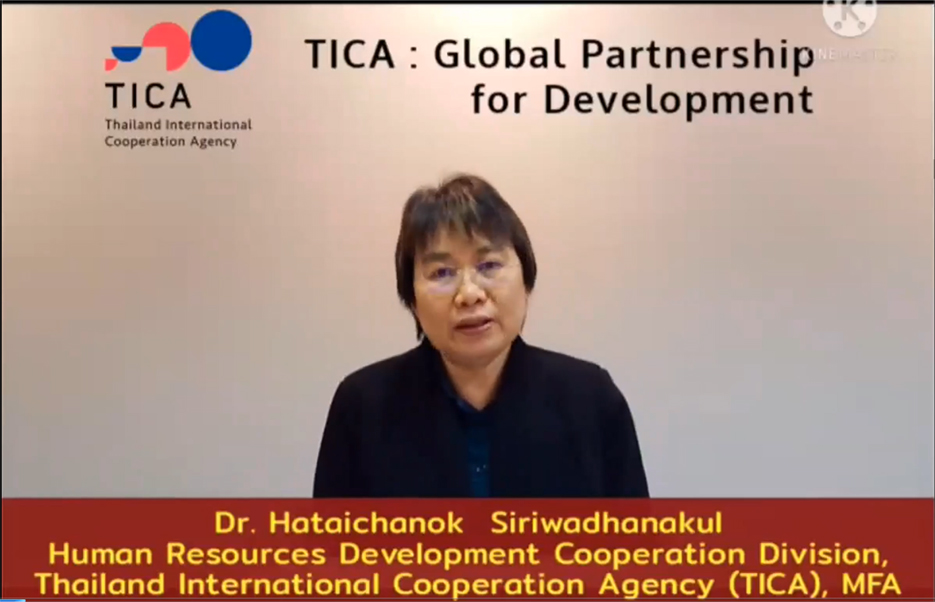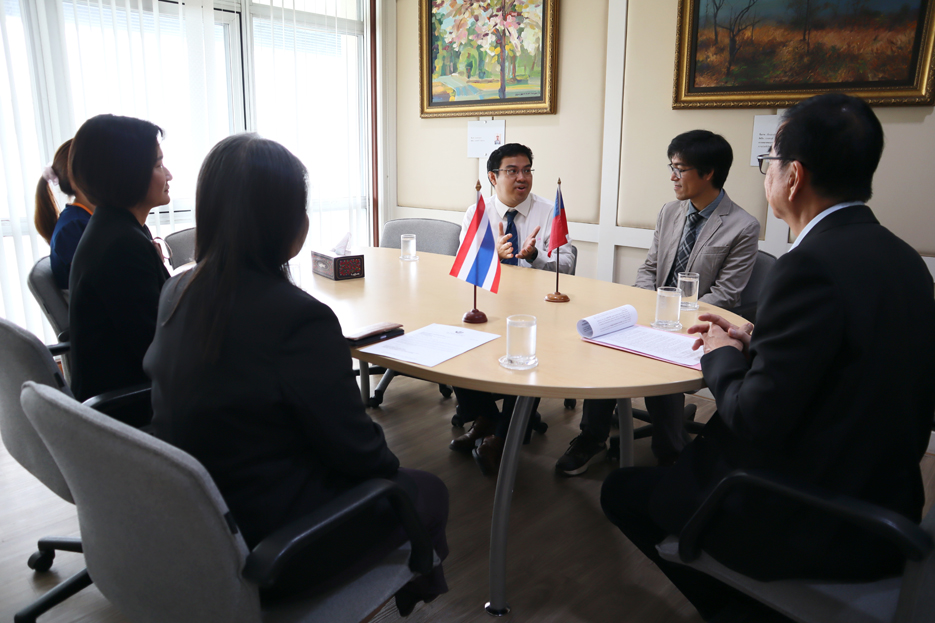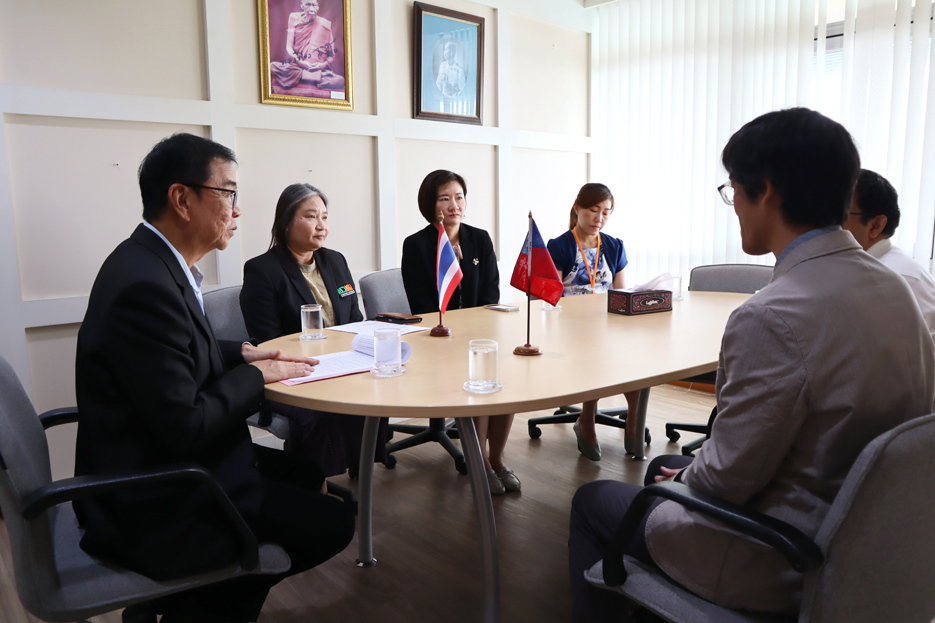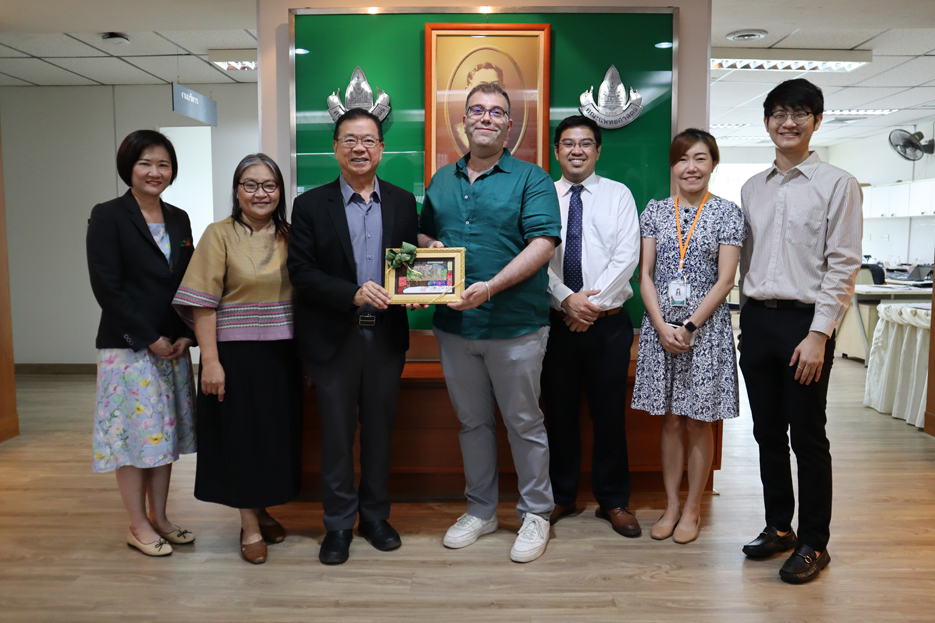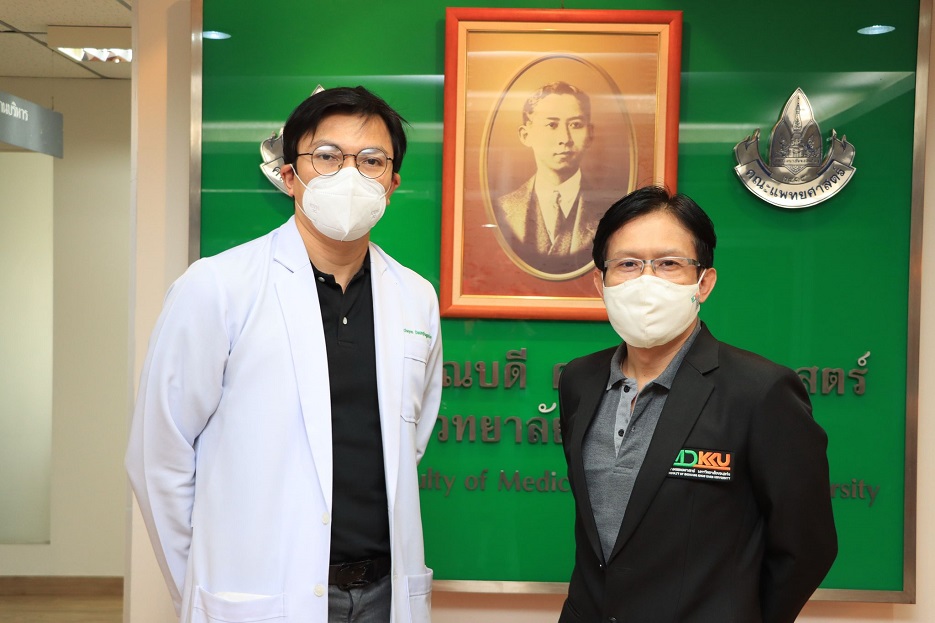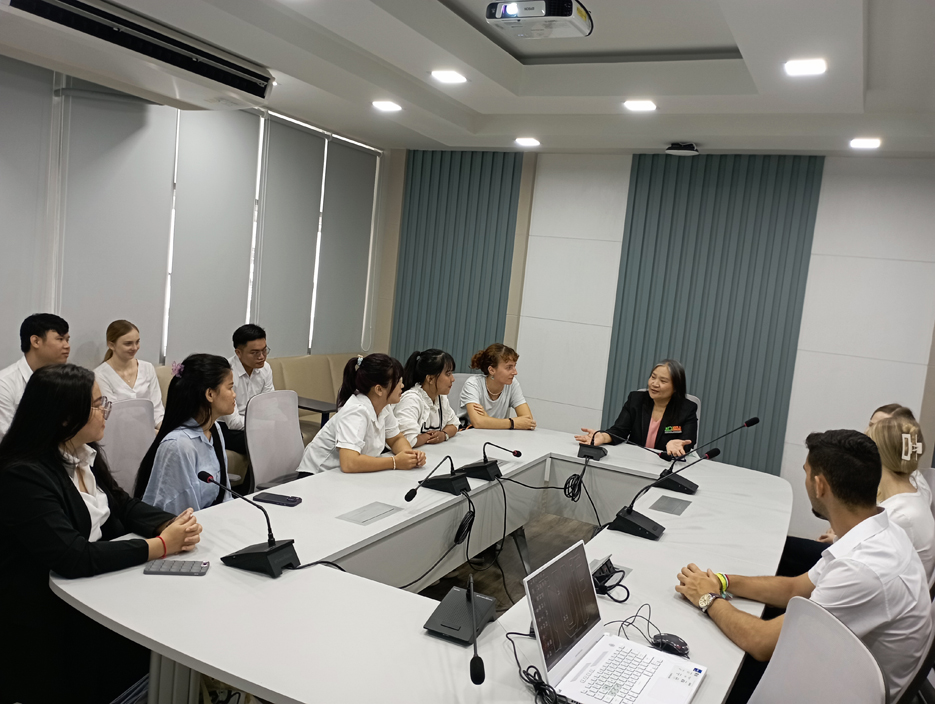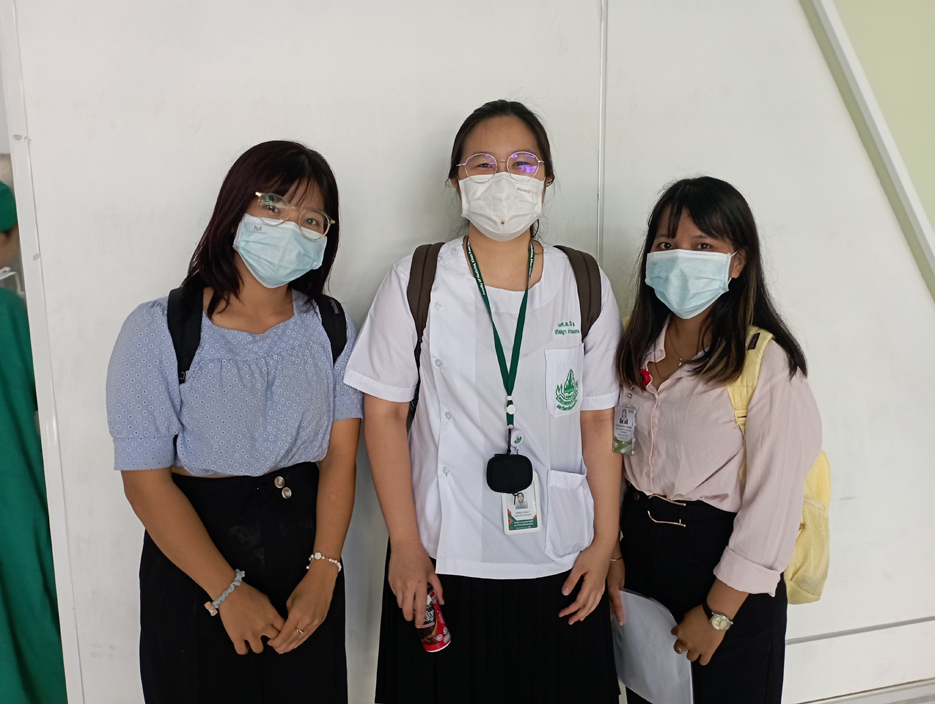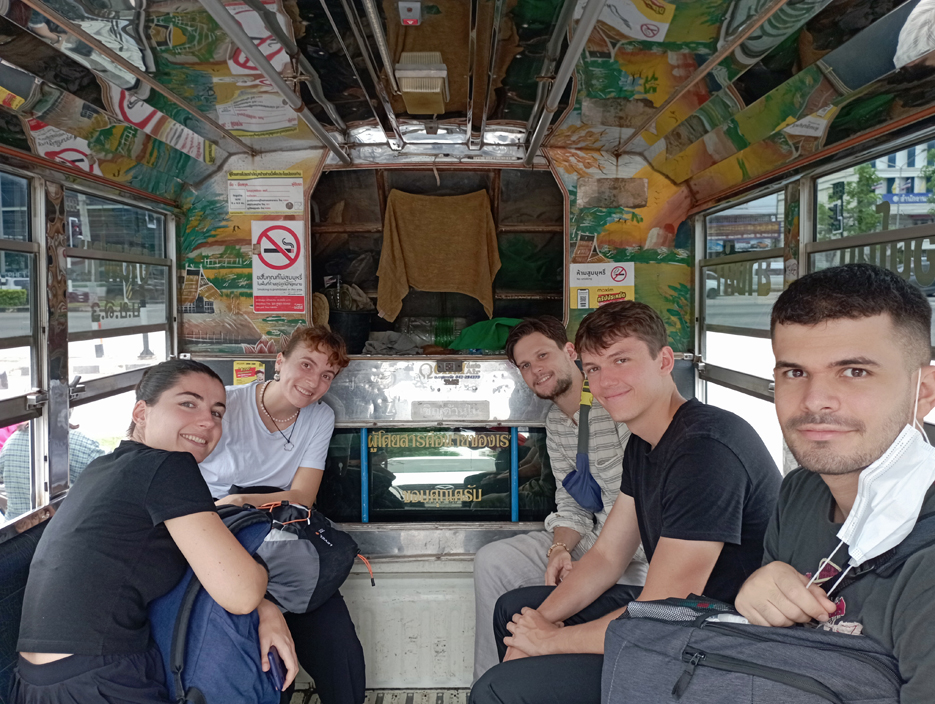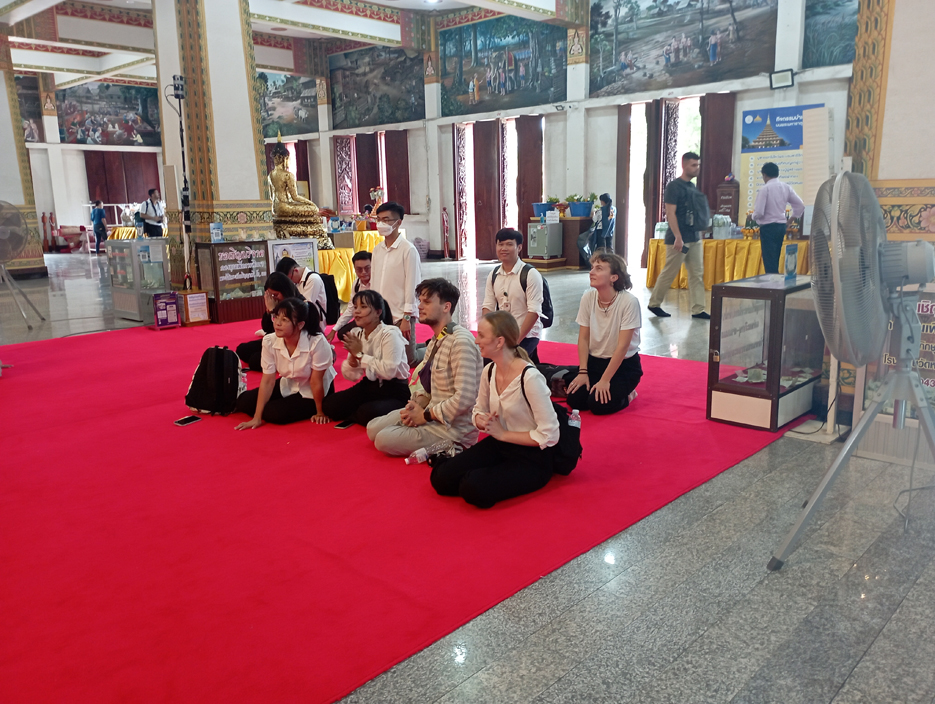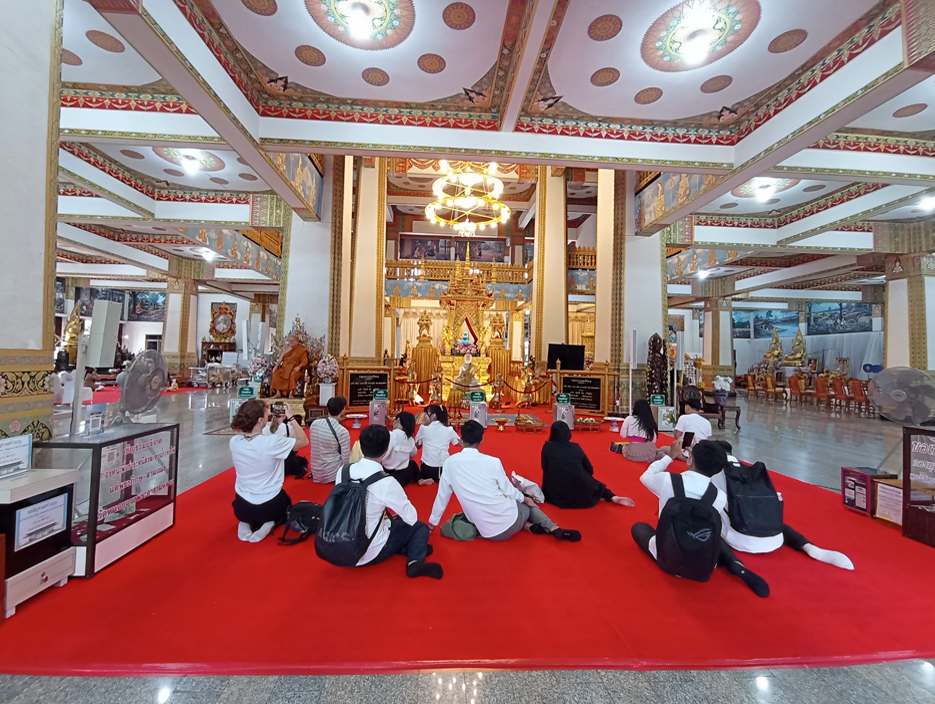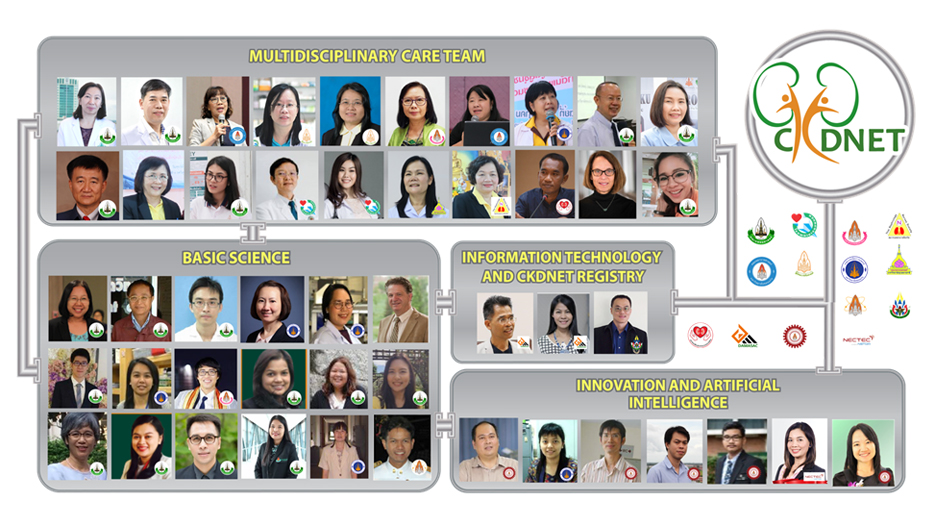
CKDNET recognizes the importance of preventing and reducing kidney disease and is committed to expanding the academic roles of Khon Kaen University in solving health problems in rural areas where population may lack knowledge and access to adequate medical services. The project is a network of cooperation between departments within Khon Kaen University, from 8 faculties (Faculty of Medicine, Faculty of Nursing, Faculty of Public Health, Faculty of Pharmacy, Faculty of Medical Technology, Faculty of Engineering, Faculty of Science and the Faculty of Agriculture), the Institute for Strategic Research and Collaboration for Northeastern Development and organizations outside the University such as the Institute of Defense Technology and the Provincial Public Health Office, hospitals, Ministry of Interior (such as Governor, Provincial Administrative Organization, District Administrative Organization, Municipality, Sub-district, Village headmen) to support medical / health sciences personnel and Village Health Volunteers, and Family Health Volunteers working on care and prevention of kidney disease. The project has ongoing government funding through Khon Kaen University, Research grants from the Thailand Science Research and Innovation (TSRI), through Program Management Unit for Competitiveness (PMUC), Office of the National Council for Higher Education, Science, Research and Innovation Policy, and the National Research Office (NRCT) since 2016.
CKDNET has carried out a number of 8 projects, [i.e., Prevention and reduction of kidney disease in urban communities; Prevention and reduction of chronic kidney disease in rural communities; Development of a rigorous and comprehensive chronic kidney disease patient care program; Cost-Effective Analysis of the Rigorous CKD Care Program; Digital Development Project for Kidney Disease Prevention; Innovative project for screening and treating chronic kidney disease; Project on study effects of environmental pollution and global warming on the occurrence of NCDs.; A population-wide assessment and treatment project for urinary tract stones for kidney disease at-risk groups and patients with kidney disease and to review of multiple strategies for maximum efficiency, and cost-savings covering the entire health service system, care and treatment system, and social welfare system, (fuller details in www.ckd.kku.ac.th and QR codes at the end of the document).
The project has mentored researchers at primary care units and hospitals in Khon Kaen Province to develop patient treatment guidelines, including new treatment approaches such as the Khon Kaen People’s Healthy Kidney Project. This project is a collaboration between Khon Kaen University, Provincial Public Health Office, Khon Kaen Municipality, Khon Kaen Hospital, and has been presented the Governor of Khon Kaen Province, and expanded to other Northeast areas, into the 12th health zone in Southern Thailand area
CKDNET has also collaborated with the National Science and Technology Development Agency (NSTDA) through the National Electronics and Computer Technology Center (NECTEC) to develop quality innovations, such as, marker sensors for screening and monitoring symptoms of early kidney disease, via substances like “NGAL” (Neutrophil Gelatinase-associated Lipocalin) using electro-chemistry techniques, and the National Center for Nanotechnology (NANOTEC) to develop a kit for quantitative and qualitative determination of albumin in urine for point-of-care testing to prevent and slow chronic kidney disease in the community, and also to develop water quality monitoring kits, especially for heavy metal, herbicide, and pesticide contamination in Ubonrat Dam and for 35 km along the Phong River.
Project outputs:
-A patient registration system has been created for managing patients, and test results in various medical institutions
-Training opportunity has been organized for doctors, nurses, pharmacists and information officers.
– Four MOUs have been signed, licensing 24 innovation projects, 24 titles, 29 manuscripts have been published research in international journals and 8 in national journals,
– Educational, media materials and manuals for the general public and patients have been produced in a variety of formats to suit varying age, economic and educational level and over 400,000 pieces have been distributed in communities.
– CKDNET’s products have been requested by 142 agencies from 33 provinces for patient care work.
– Seventeen agencies/organizations have requested biobank database and blood and urine samples for research.
-Three models of the “Suksala”, health check machine innovation, have been produced for application with Village Health Volunteers, patients, people at risk of kidney disease and the general public.
– A new technique for measuring NGAL biomarkers for nephrotic patients was developed.
– A model was created for community behavior change to reduce health problems in both urban and rural communities. It included rigorous, multidisciplinary patient care training to educate health service personnel, village health volunteers, community leaders participation, and promoting community, interest and awareness of local health issue.
– Systems for village health volunteer screening and monitoring patients’ symptoms were strengthened. This included the use of concrete practice innovations (such as reading blood pressure and sugar levels from a meter, noting urine color the color changes that represent kidney function changes, using a salinity meter for testing food salinity meter for testing salinity level.
The above are all aimed at preventing and slowing the progression of “non-communicable diseases” (NCD) and CKD, through better control of diabetes and blood pressure, and reducing smoking and alcohol consumption in the community (details in QR codes at the end of document).
In addition, CKDNET’s economic and health cost-effectiveness impacts on the country were evaluated through cost-effectiveness analysis of the project implementation, compared to normal care. Results indicated could reduce chronic kidney disease patients’ worsening from stage 3 to 4 by approximately 75,400 people per year, and from stage 4 to 5, by about 41,300 people per year, clearly a best by intervention.
In addition, there is a basic sciences research on animals to be published on the effect of monosodium glutamate (MSG), Liver fluke infection, and changes in gut bacteria (microbiome), on the kidney pathology development.
Future plans include developing a seamless, sustainable remote health system (KKU CKD Telehealth platform) connection model for health care from the community primary care to tertiary hospital care. This will be specific for kidney disease and “non-communicable diseases” patients using web and mobile applications combined with some CKDNET project innovations. This will extend the CKDNET hospital registry system for using by Village Health Volunteers for reporting on individual patient health outcomes (via Raktai Application), including public health measurement data from the Suk-sala machine. This KKU CKD telehealth system will promote multidisciplinary care and integrates treatment, prevention, health promotion, and health restoration whilst making travel and other practice-cost savings.
Further research will focus on the impact of water pollution and agrochemical contamination on kidney disease incidence in rural communities, especially idiopathic kidney and other related diseases.
A joint project with NANOTEC plans to develop screening innovations for early kidney disease with further albumin analysis kits: portable quantitative and semi-quantitative urine creatinine kits. It is also planned to develop economically prices sensors for detecting small quantities of drinking water chemical contaminants by focusing on easily use inspection techniques. For example, to detect level of ferrous metals (Fe), manganese (Mn), aluminum (Al) and pesticides, including glyphosate and paraquat, in the local areas. There is an existing sensors technology base that can be developed for local and rural use to monitor and improve water quality.
CKDNET project has already surveyed and found that households and community water sources quality is lower standard in some of these areas. Local innovations through community and industrial sites collaboration could test effective pragmatic practice to rectify this situation, which could then be further developed into a national policy.
ภาคผนวก
สรุปผลงาน CKDNET
1.รวมสื่อประชาสัมพันธ์ CKDNE
https://drive.google.com/drive/u/0/folders/1QcC55z26LjdRuAkN6J5-iMN1oDSh_cDP

2. ผลงานลิขสิทธิ์ จำนวน 24 เรื่อง
https://drive.google.com/drive/u/0/folders/1tYxOE8_JwDqBOUcr0xatJtGd2soSe4-F

3.วารสารโครงการ CKDNET
https://drive.google.com/drive/u/0/folders/1tnJZ4N2a_K-6gAkNrp-m8mj_VUmC5TYW

4.วารสารฉบับพิเศษ
https://drive.google.com/drive/u/0/folders/1MY87prBOFWghZO9NWslz85wM1PJDXzOO

5.CKDNET paper
https://drive.google.com/drive/u/0/folders/1e3KxQ9RqkFeF0nTHxgS1GT4IGe87nqwB

6.คลิป VDO นวัตกรรมตู้ตรวจสุขภาพอัจฉริยะ “สุขศาลา”
https://drive.google.com/drive/u/0/folders/1fiK9jRTLEfHA9KX1jgJqaE2j4lk-pzvT

7.สรุปงานภาพรวม CKDNET
https://drive.google.com/drive/u/0/folders/1oJVzfRfvkmoPeYLl3VSpCJltZ36xFGJ

รูปภาพประกอบ
คณะผู้ร่วมโครงการป้องกันและชะลอโรคไตในภาคตะวันออกเฉียงเหนือ (Chronic Kidney Disease Prevention in the Northeast of Thailand: CKDNET)

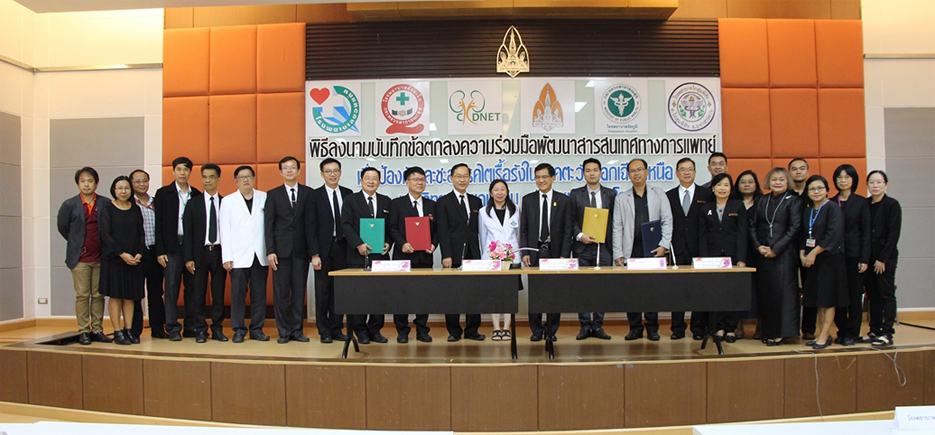

สรุปการดำเนินงานตั้งแต่ พ.ศ. 2559-ปัจจุบัน
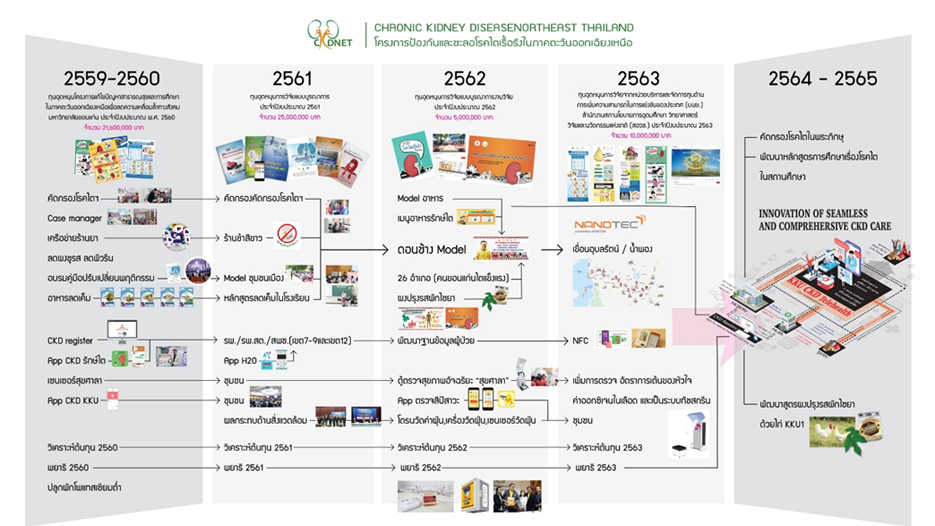
การสร้างรูปแบบป้องกันโรคไตในชุมชน และคัดกรองโรคไตเรื้อรังและปรับเปลี่ยนพฤติกรรม

นวัตกรรมในการตรวจคัดกรองและติดตามอาการผู้ป่วยโรคไต
การสำรวจมลภาวะทางน้ำและพัฒนาชุดตรวจวัดคุณภาพของแหล่งน้ำและน้ำที่ใช้ในครัวเรือนภายใต้โครงการ อว. เพื่อสำรวจปัญหาสุขภาพและคุณภาพน้ำ ในแหล่งน้ำและน้ำที่ใช้สำหรับอุปโภค-บริโภค ในพื้นที่เขื่อนอุบลรัตน์และอำเภอน้ำพอง จังหวัดขอนแก่น
